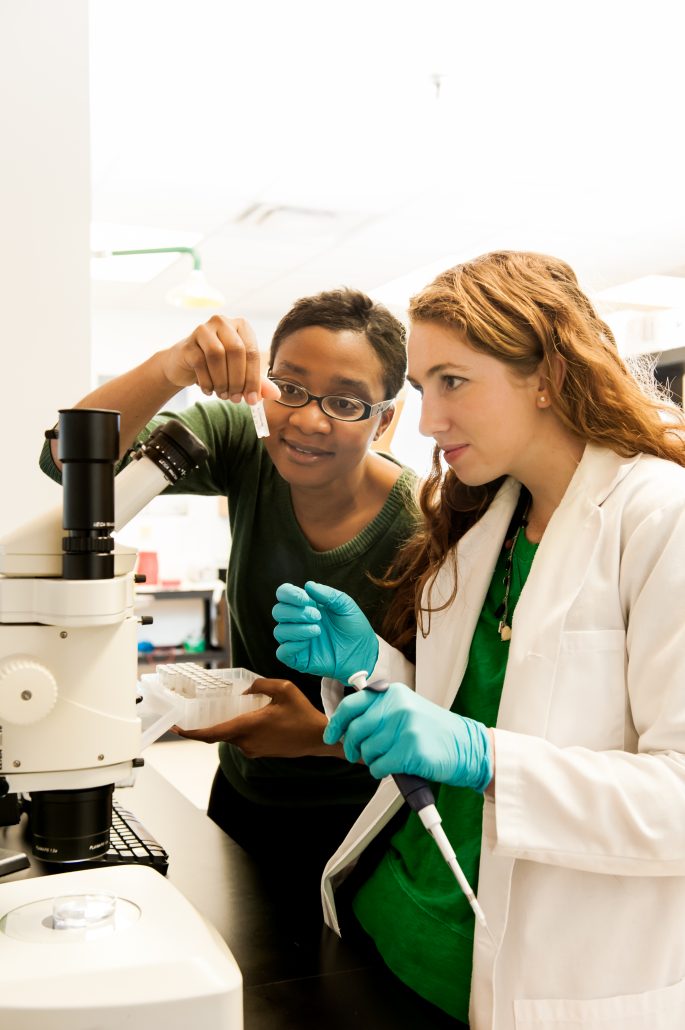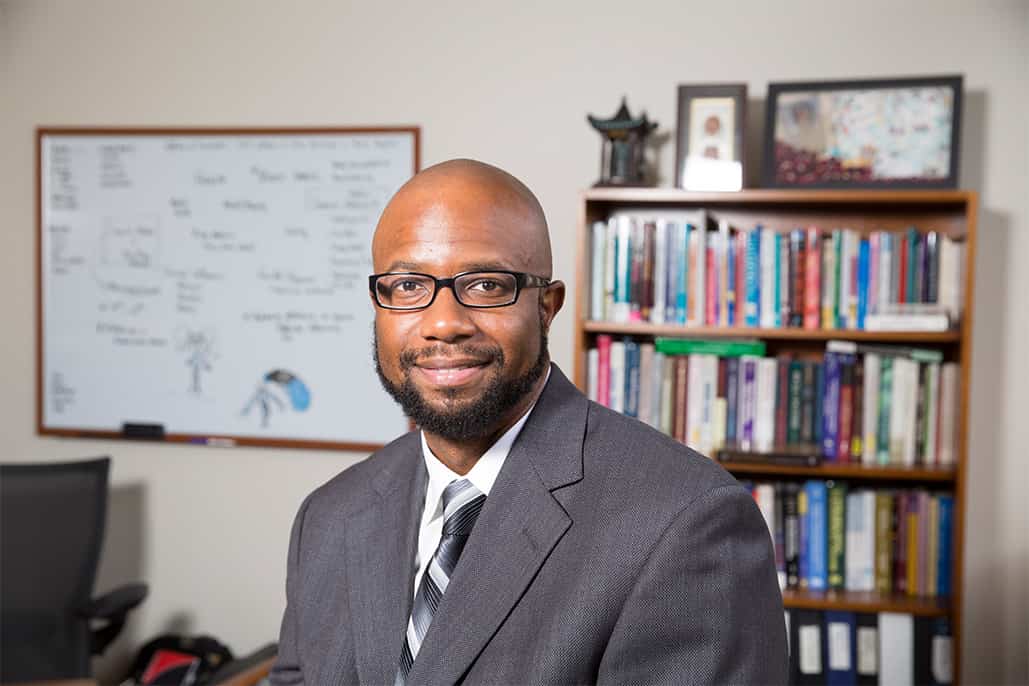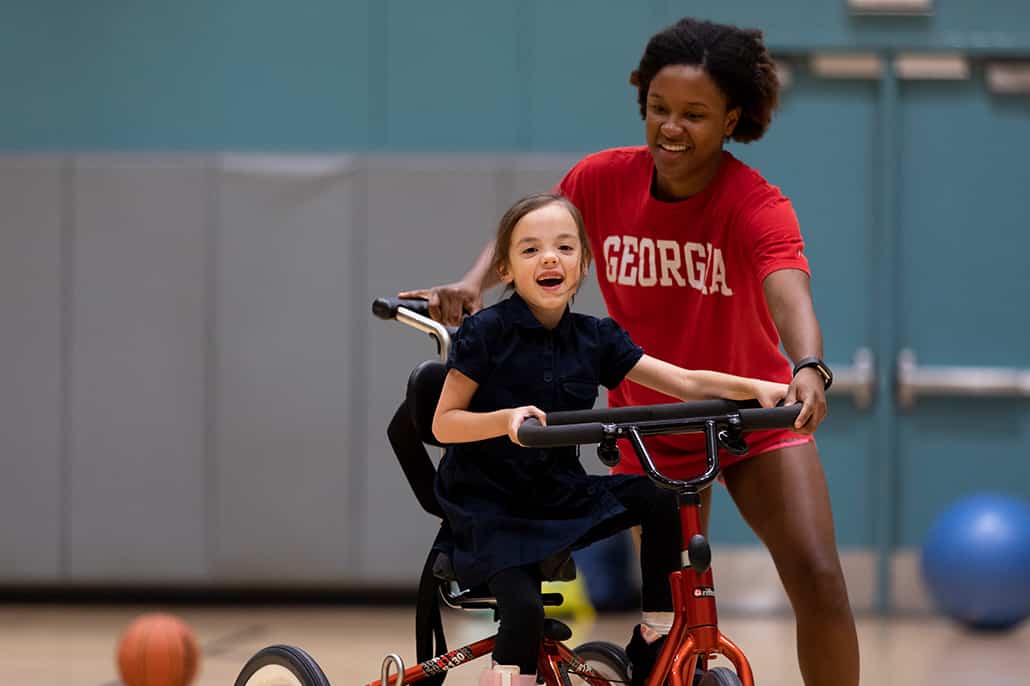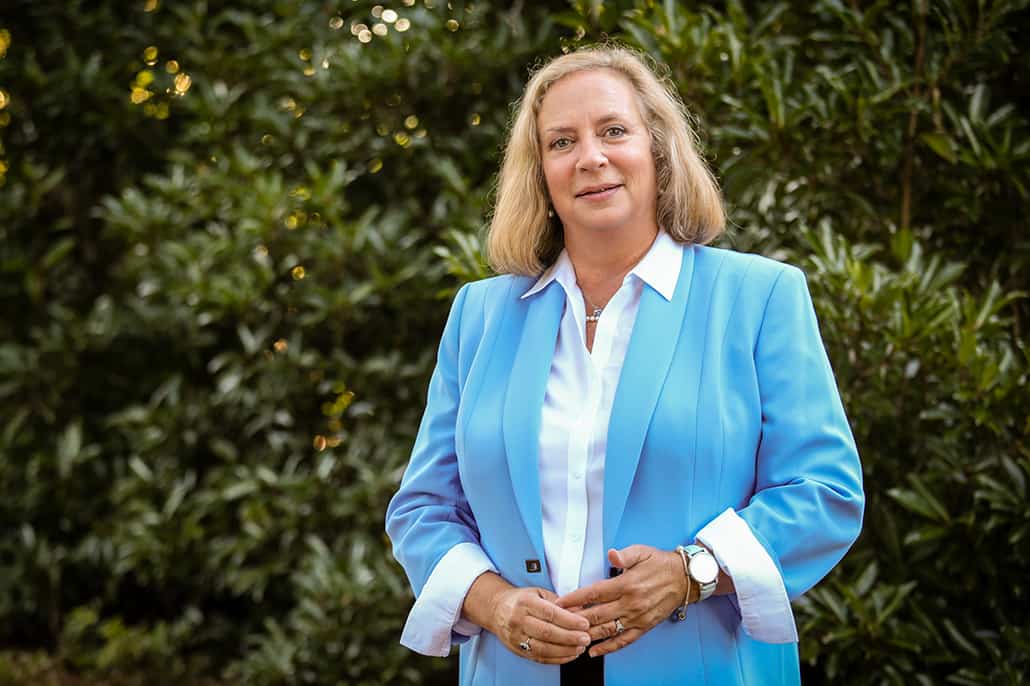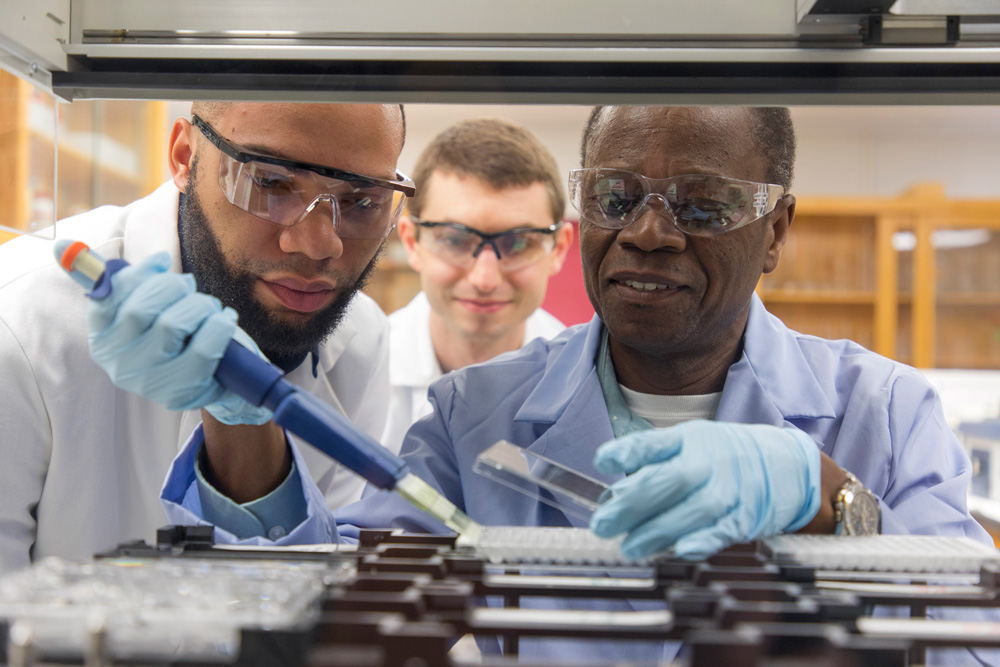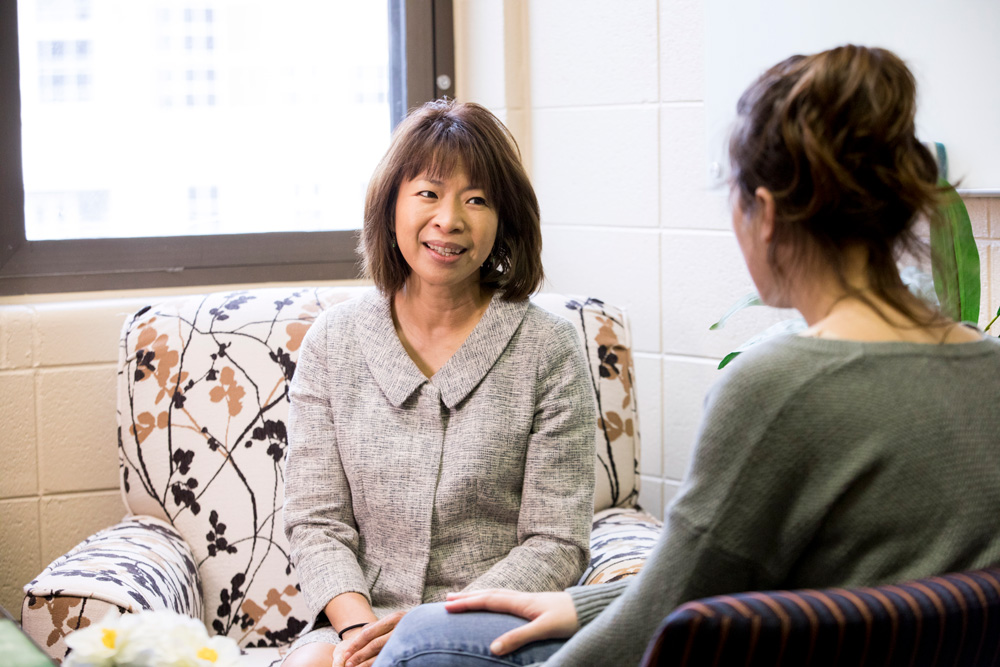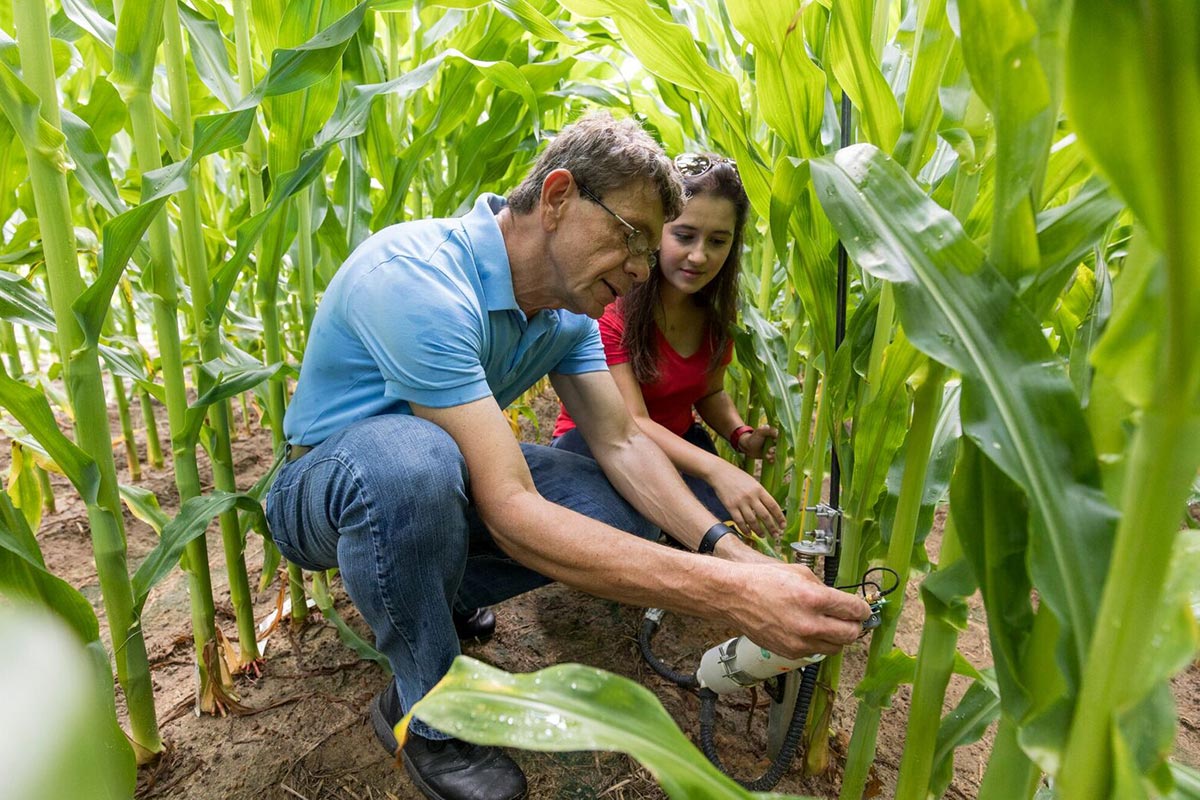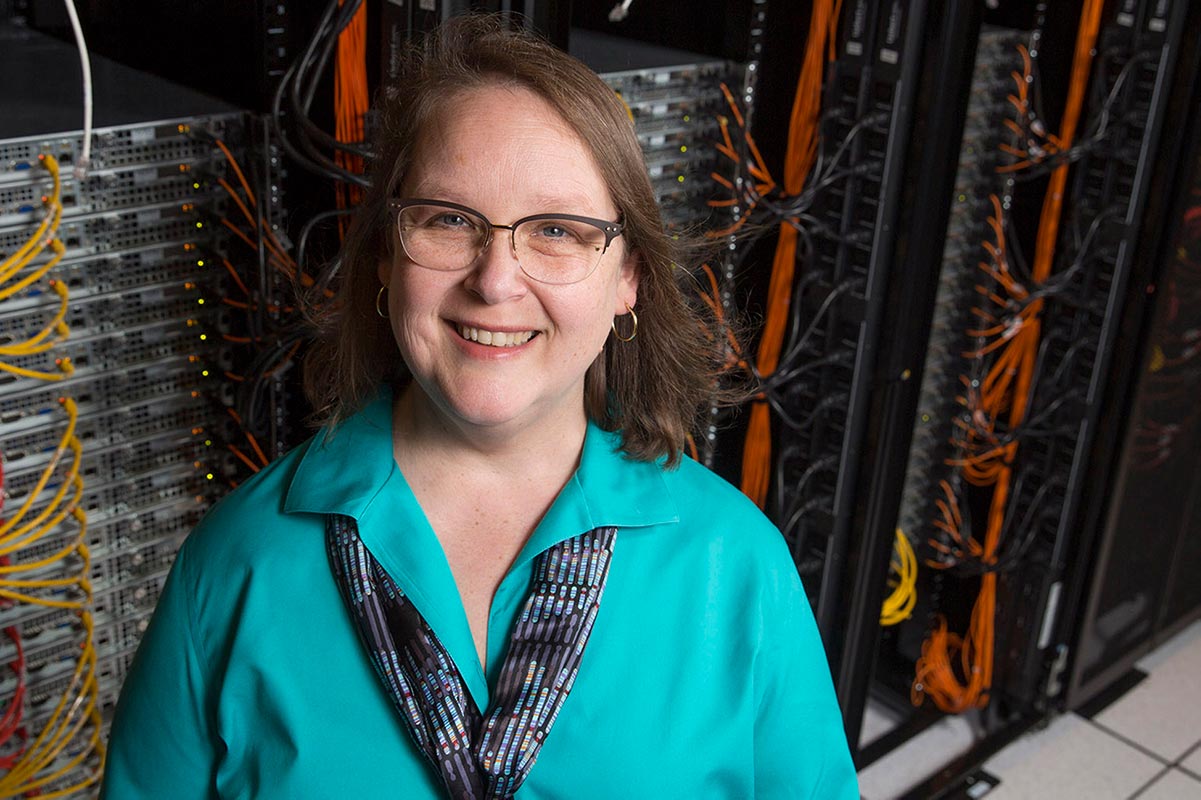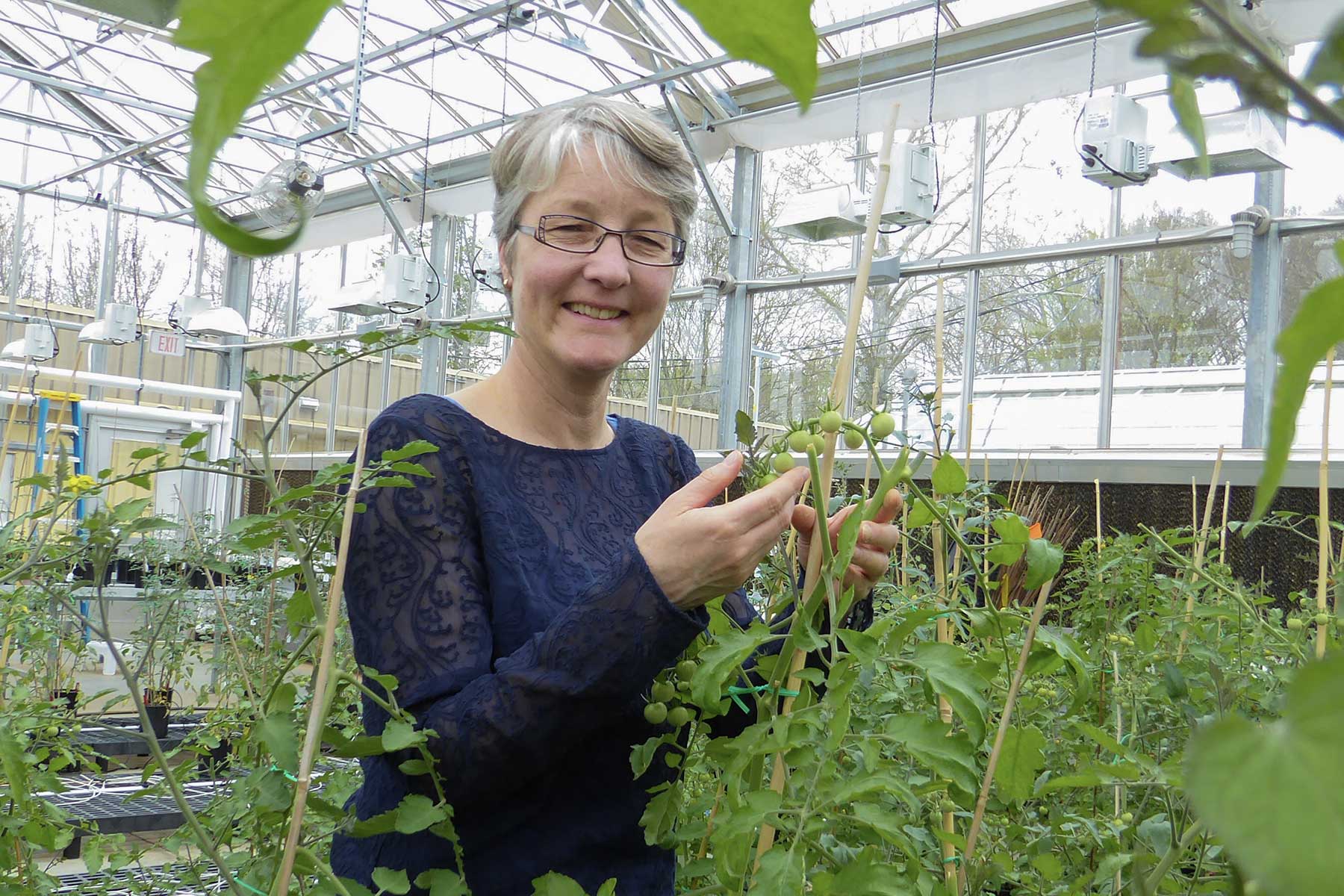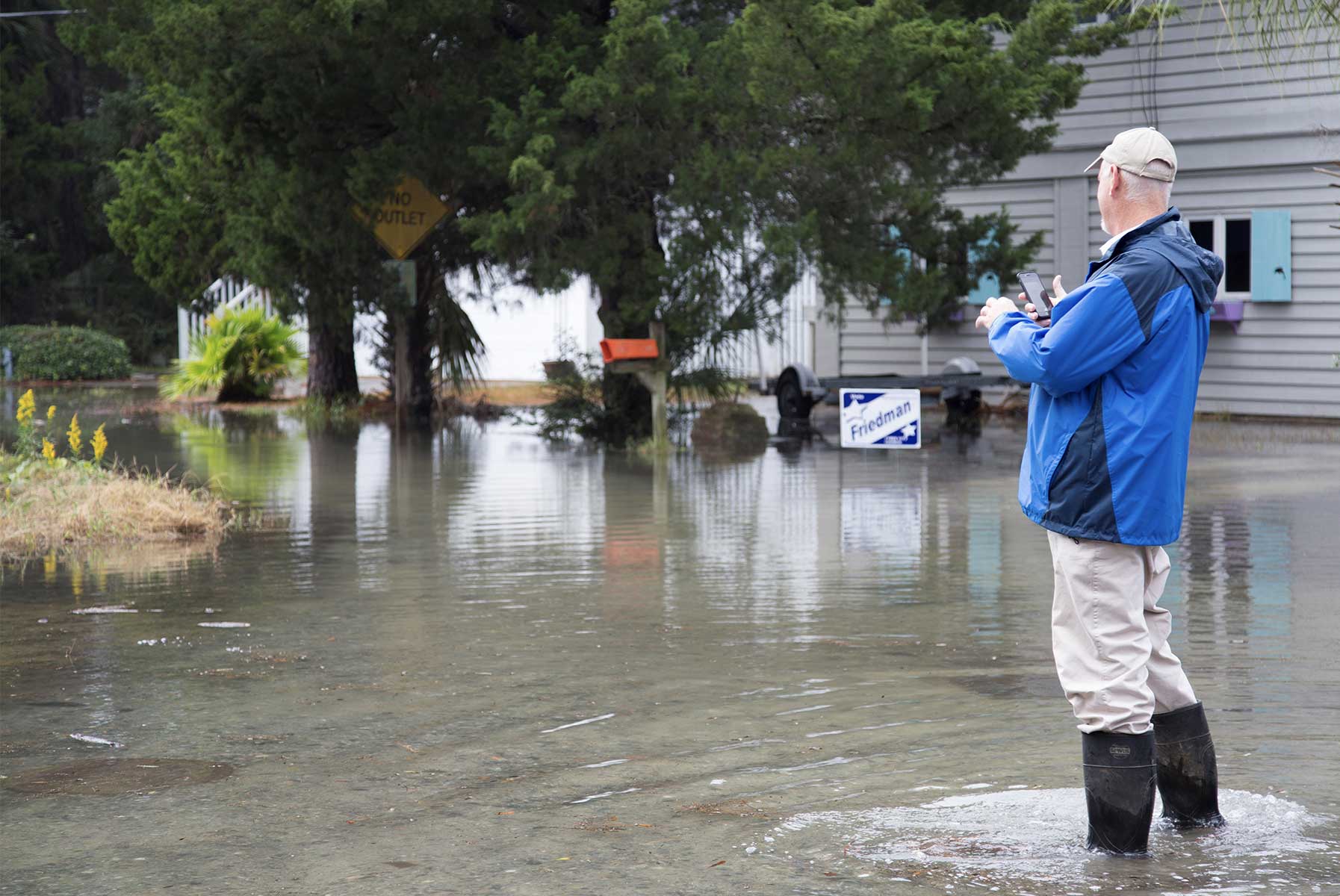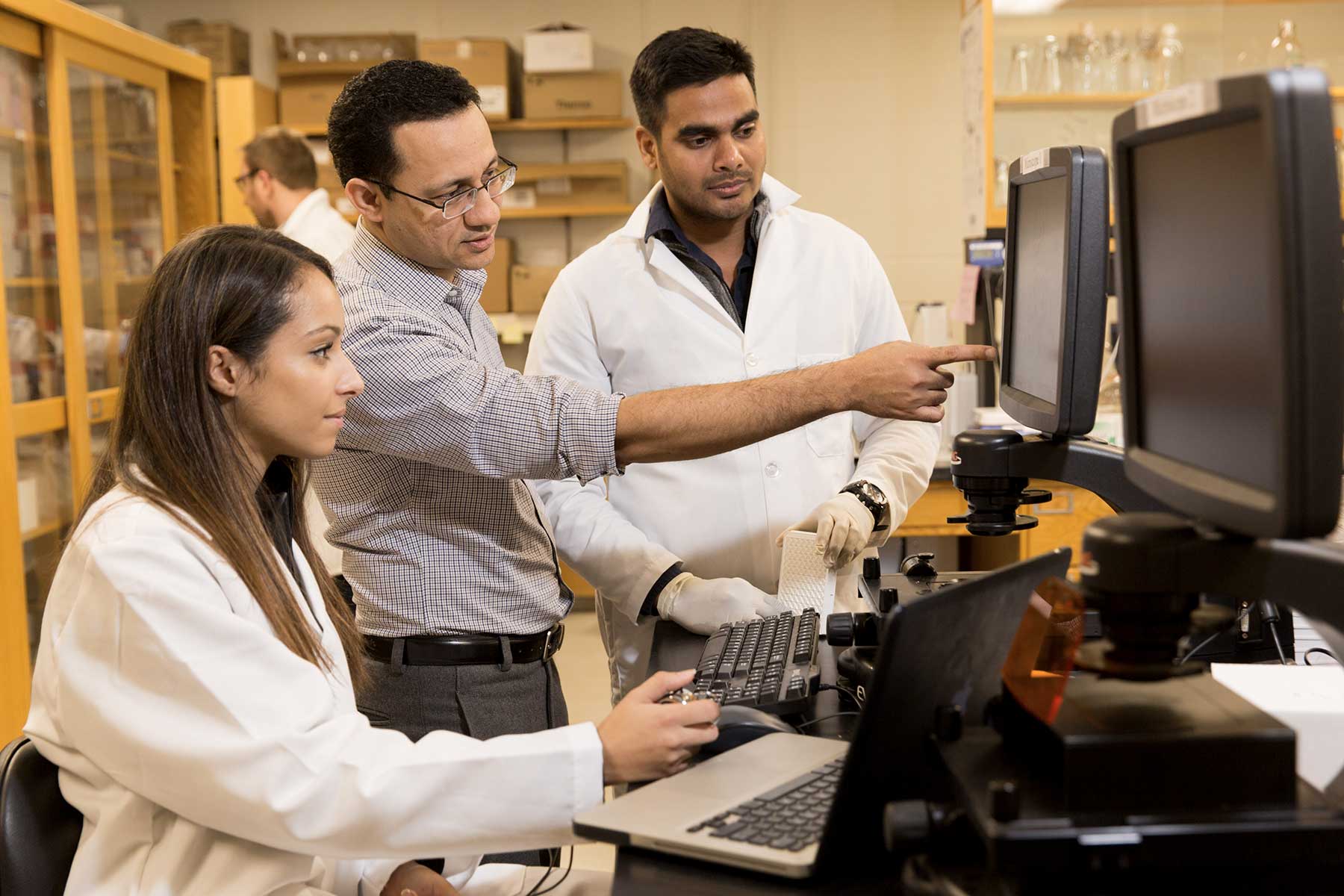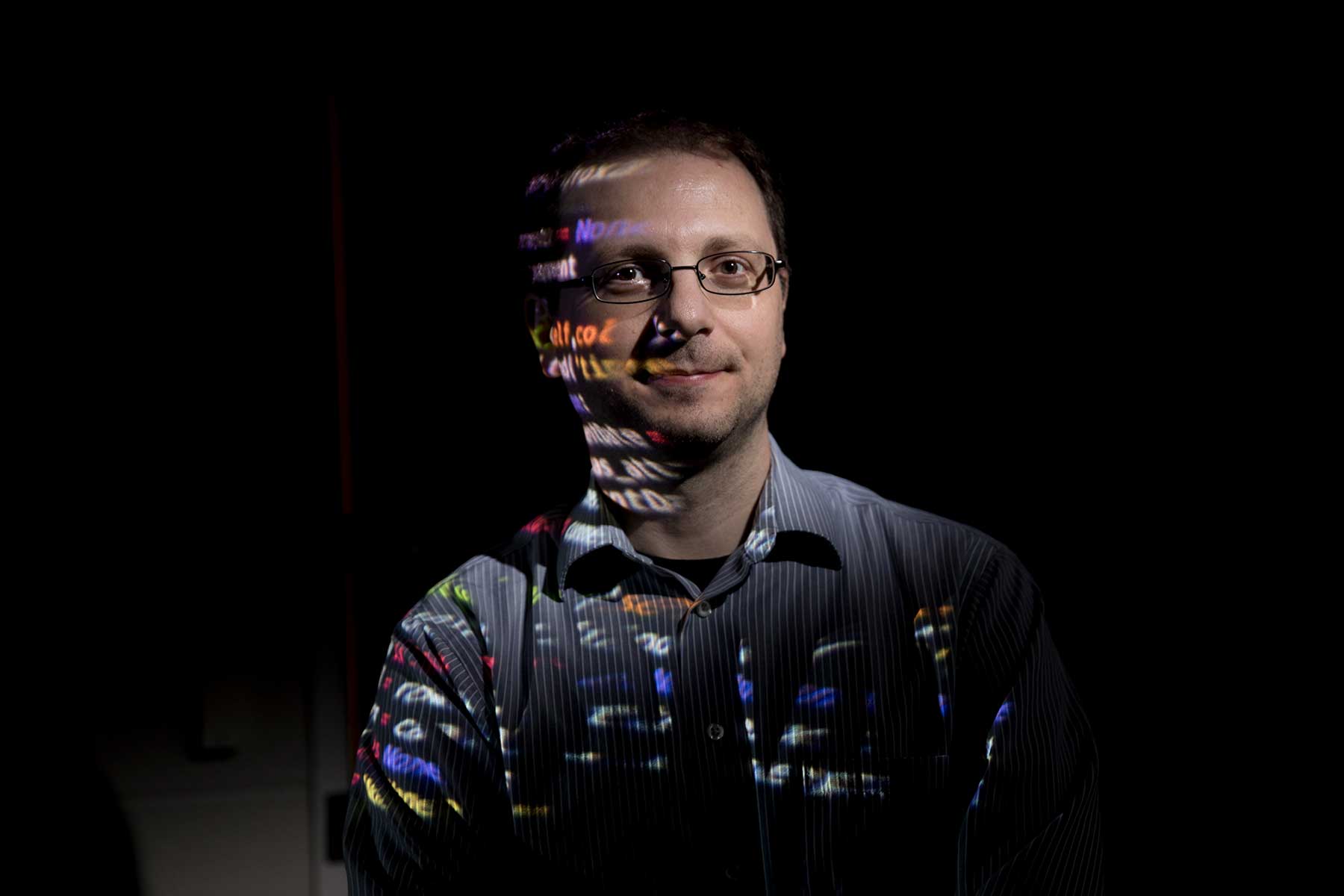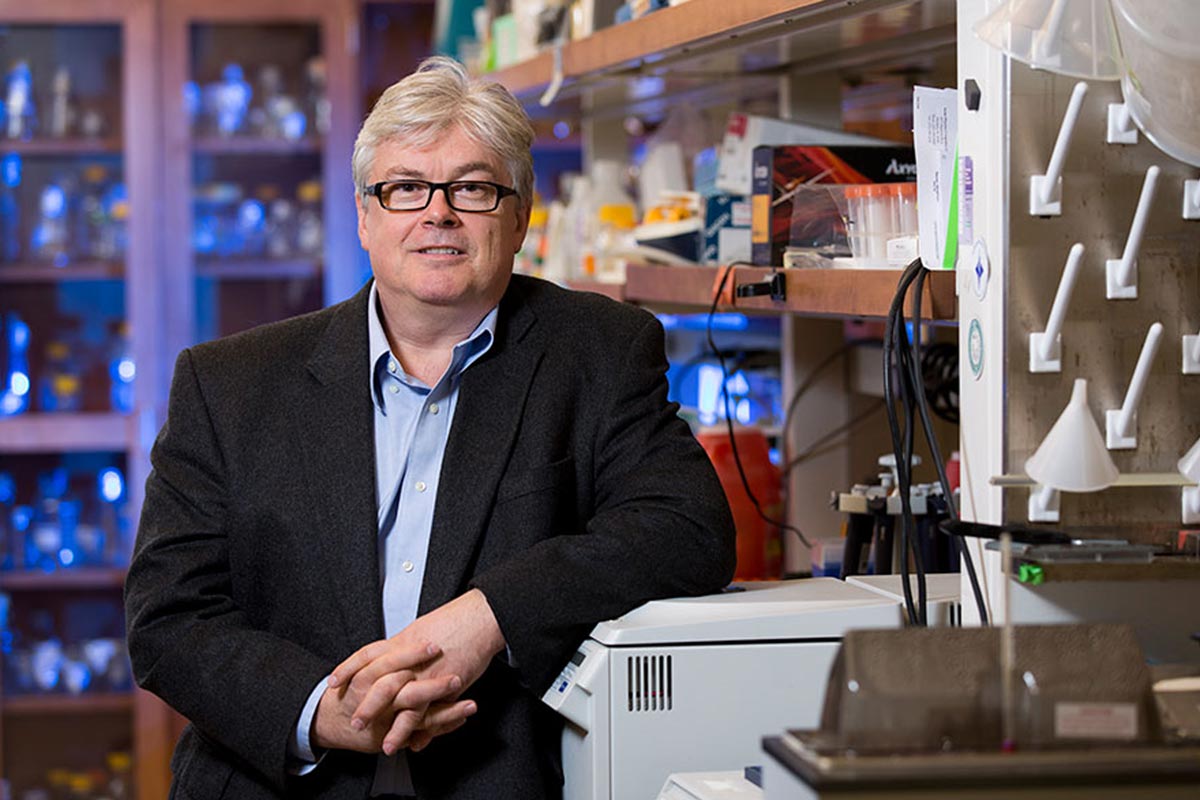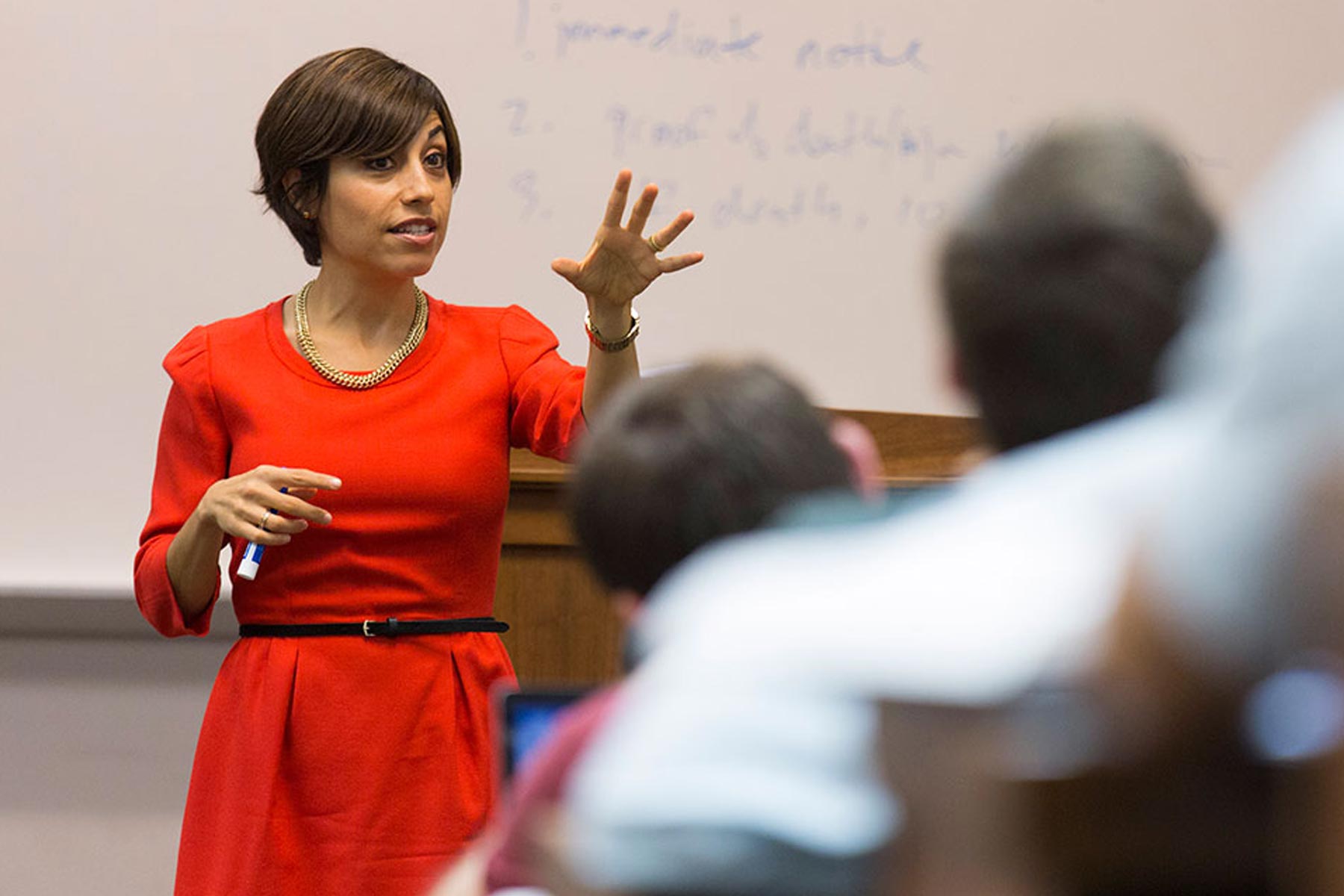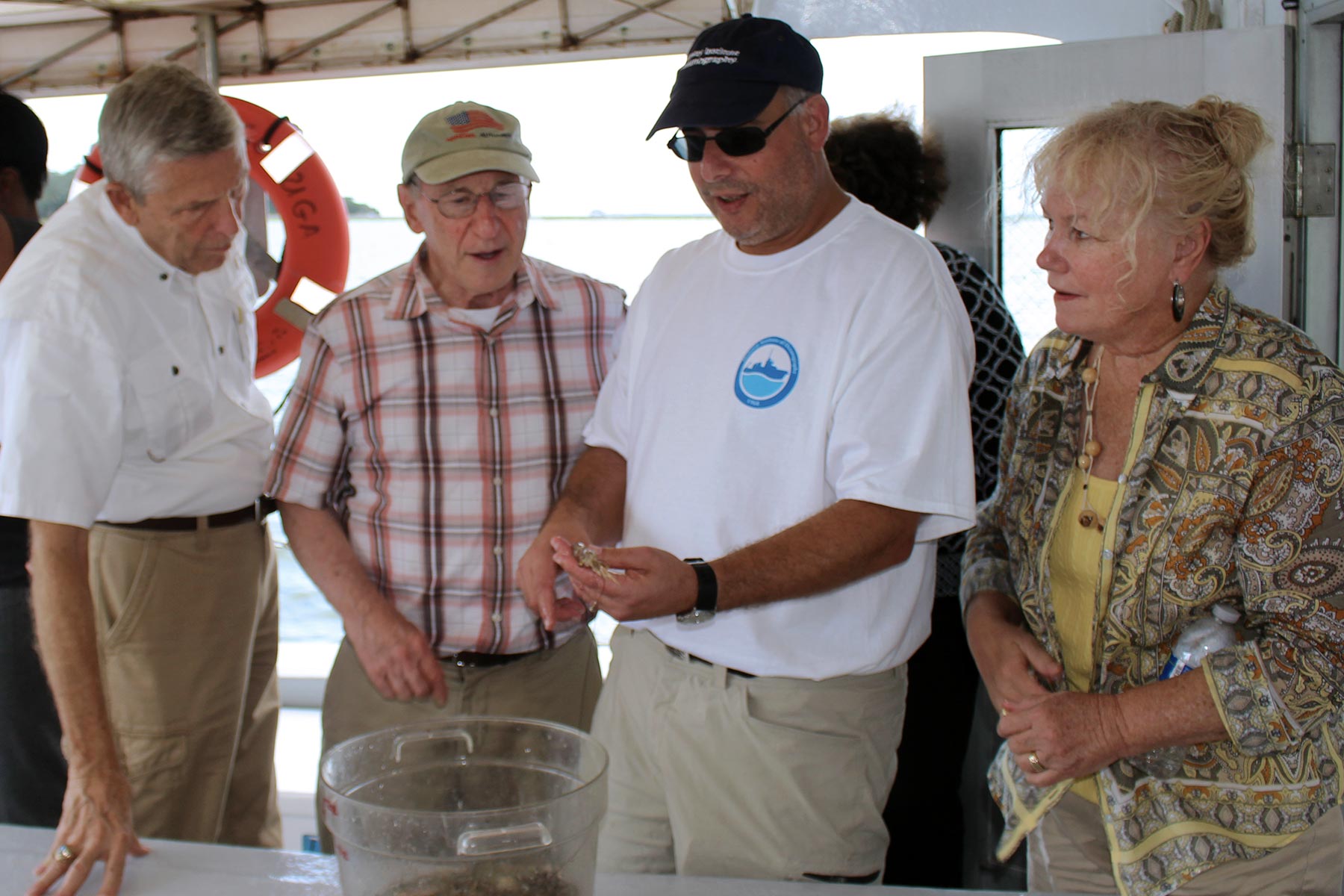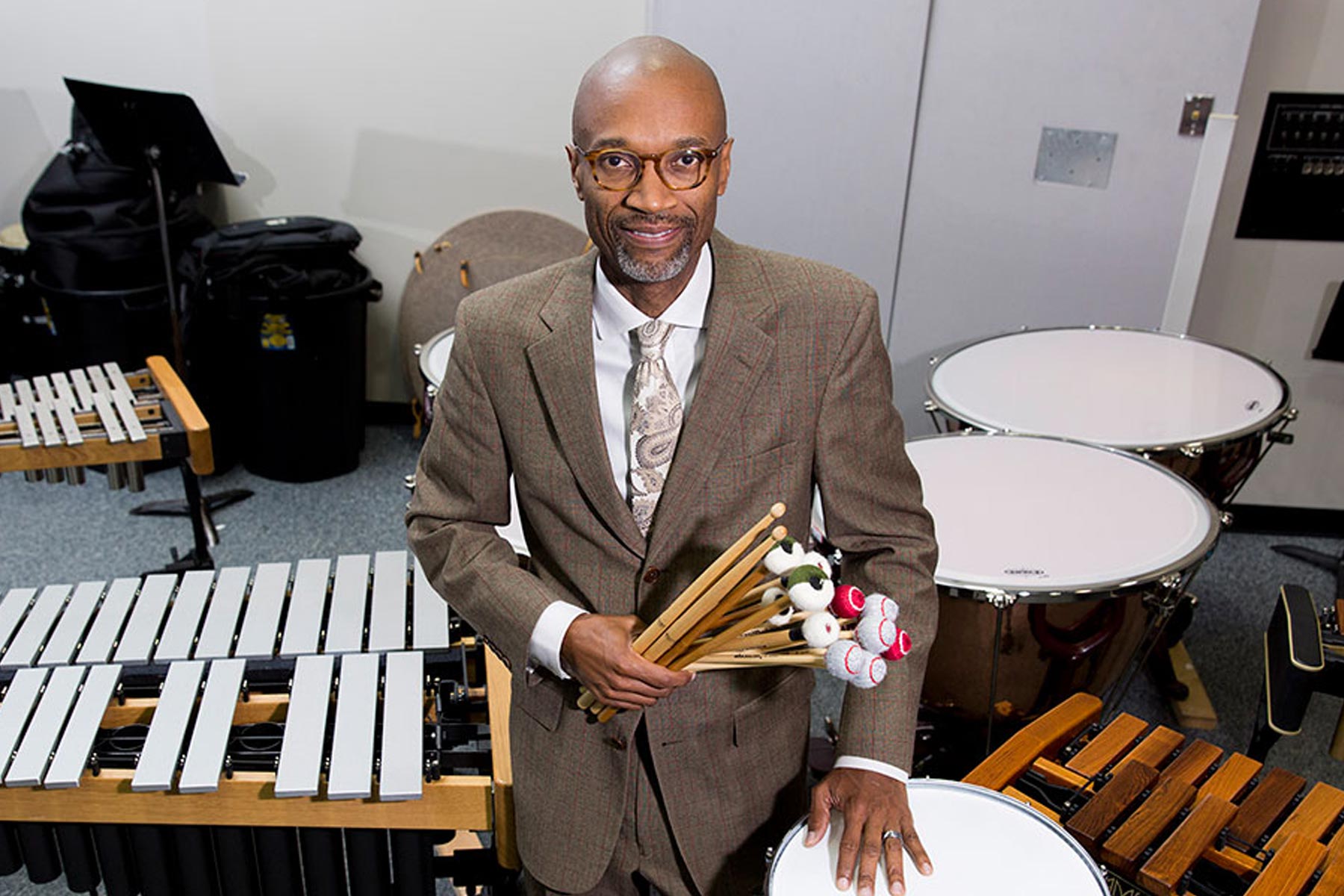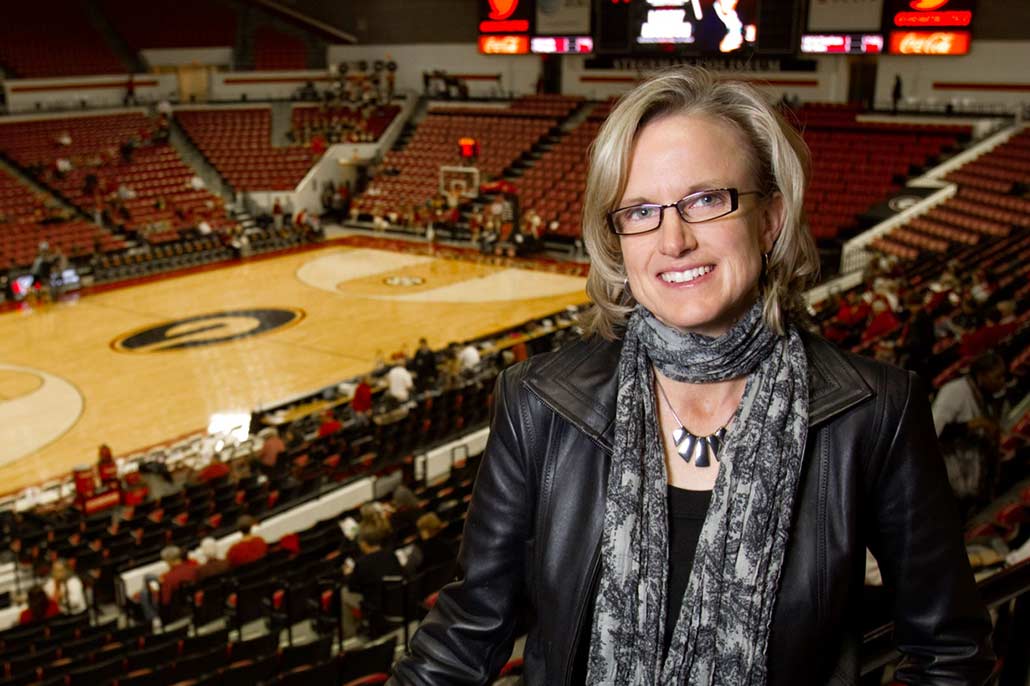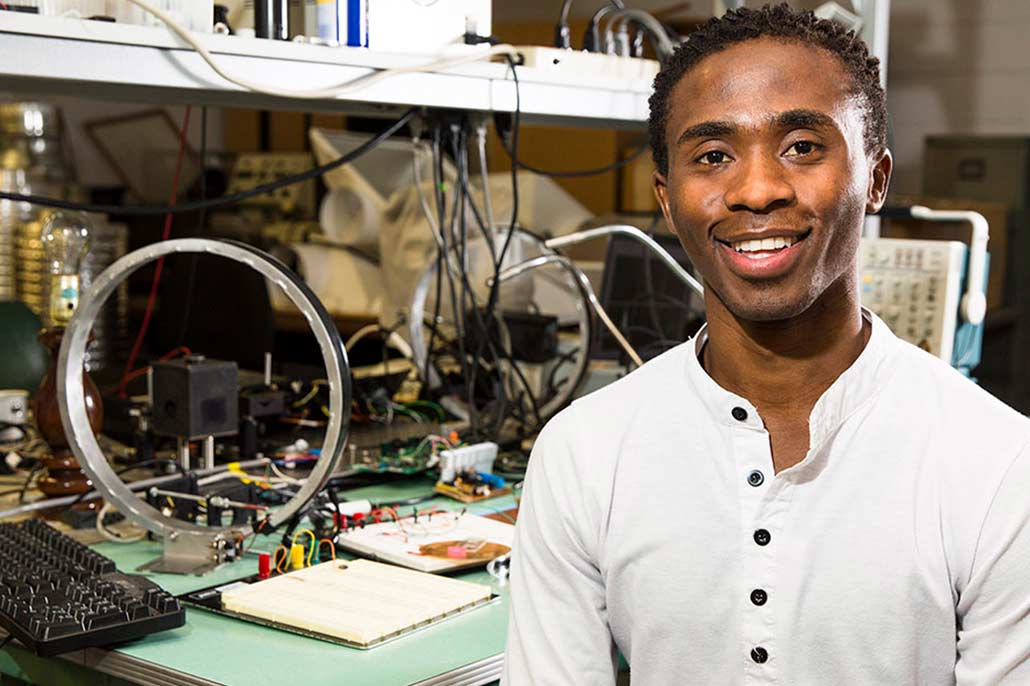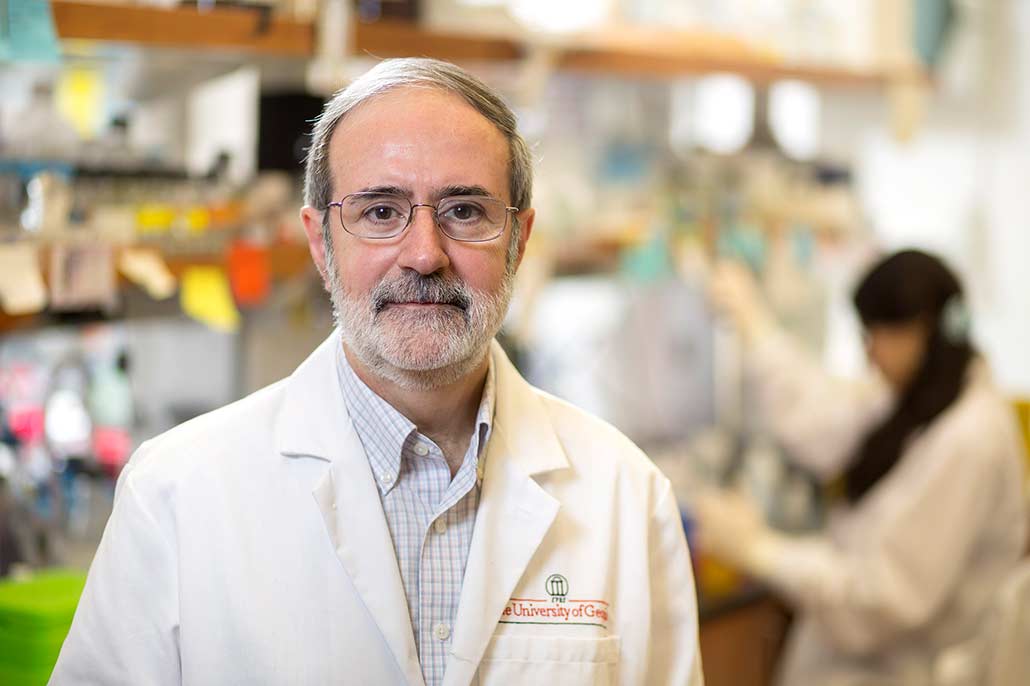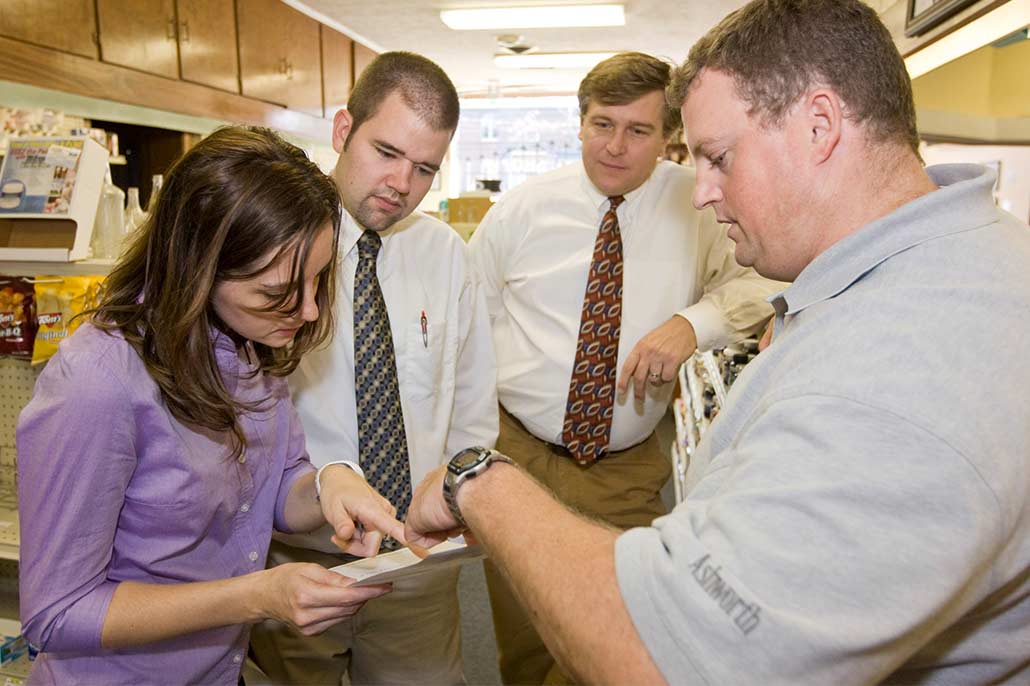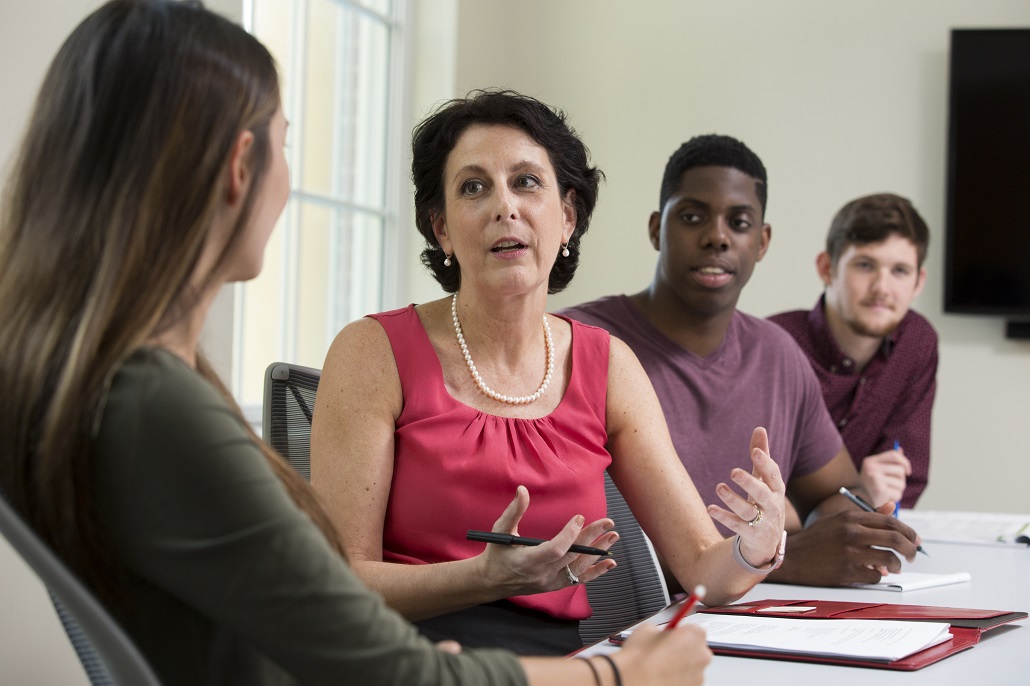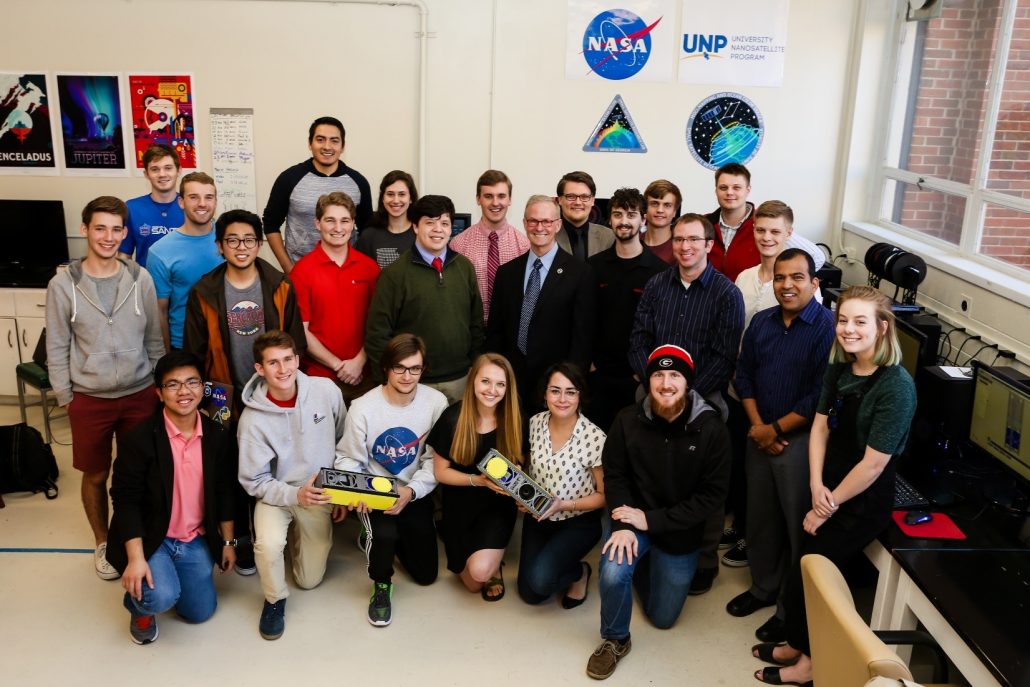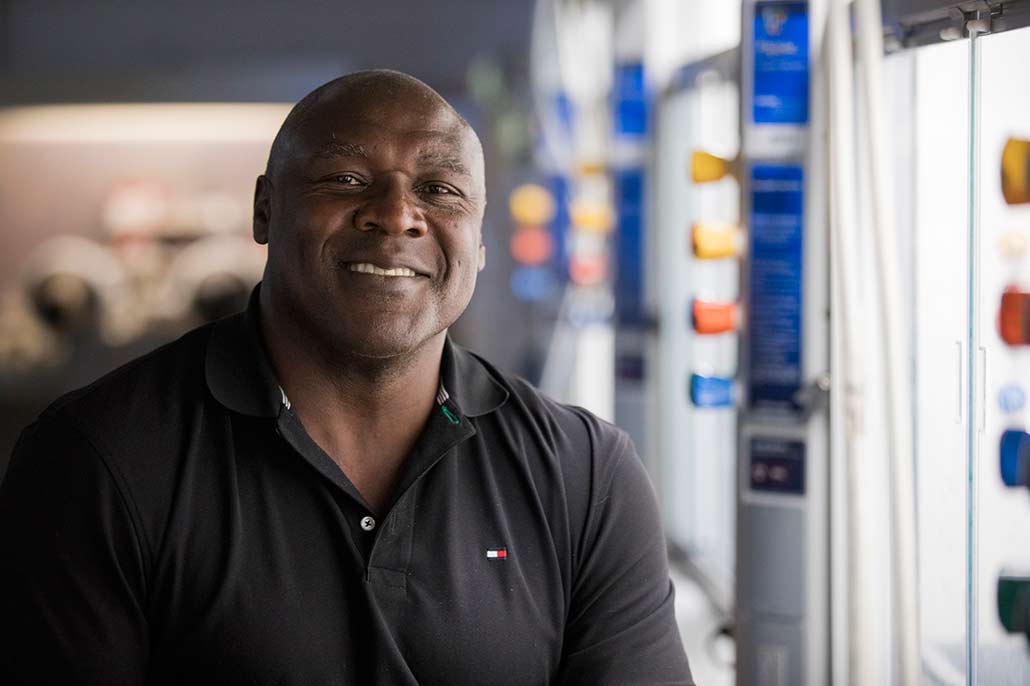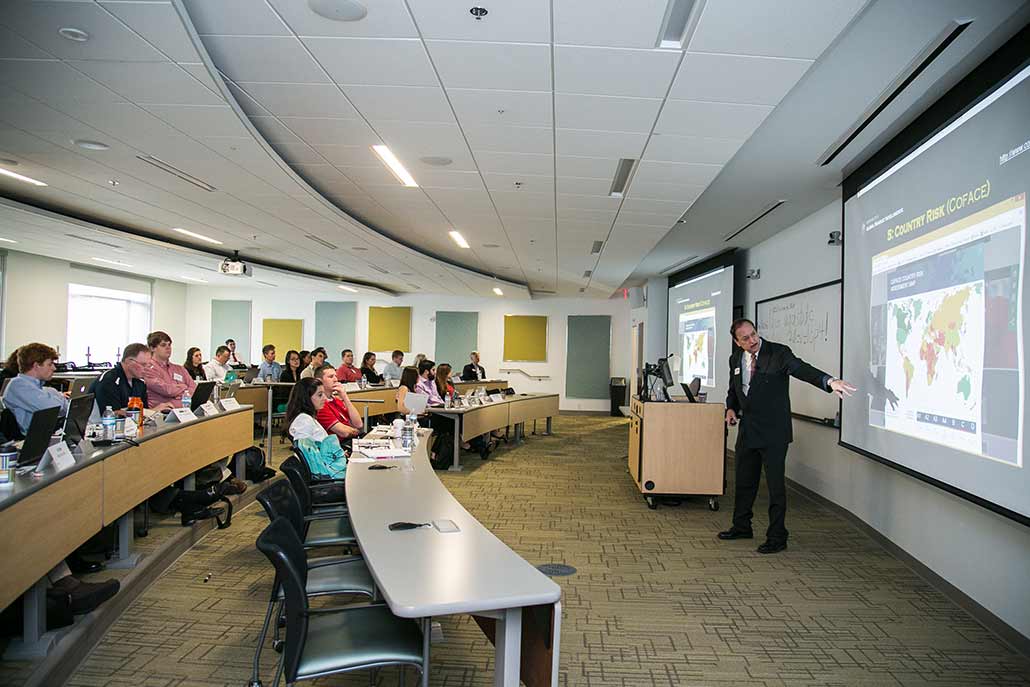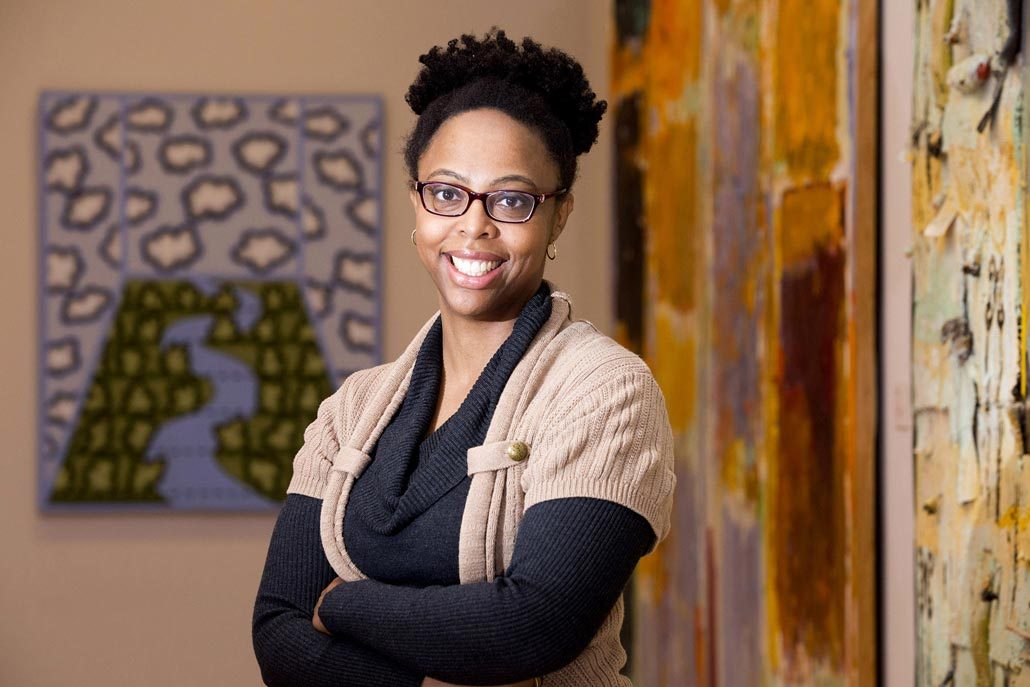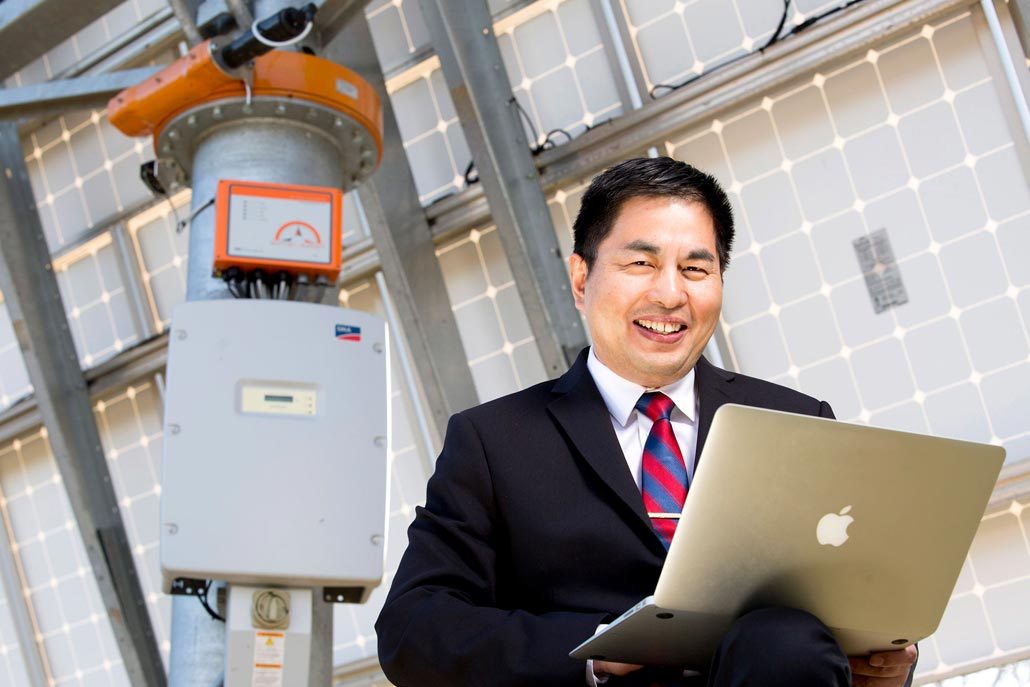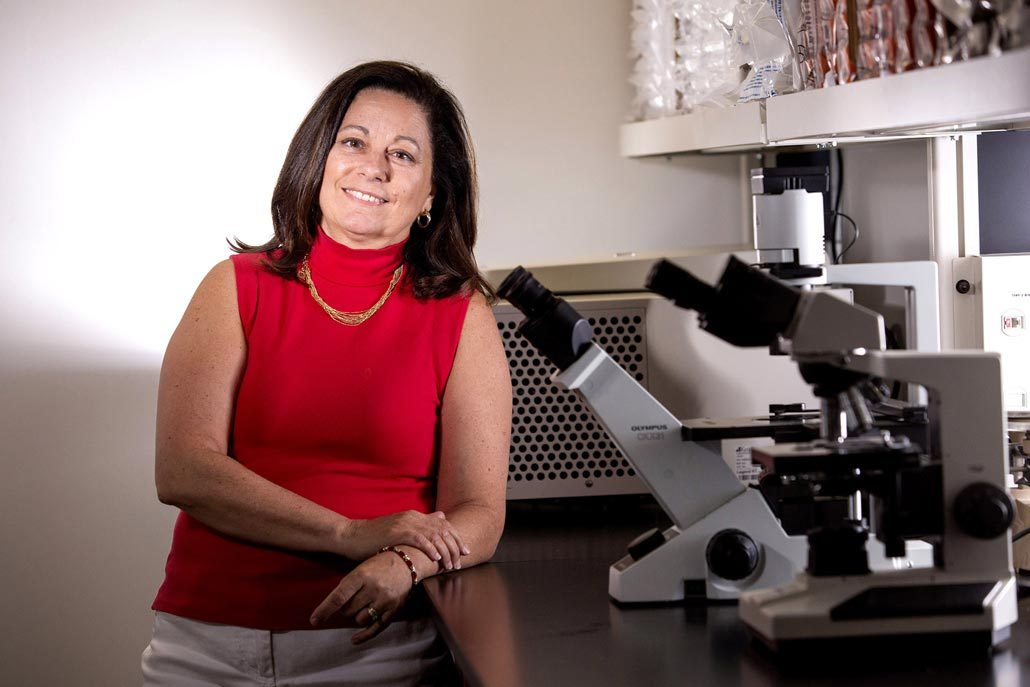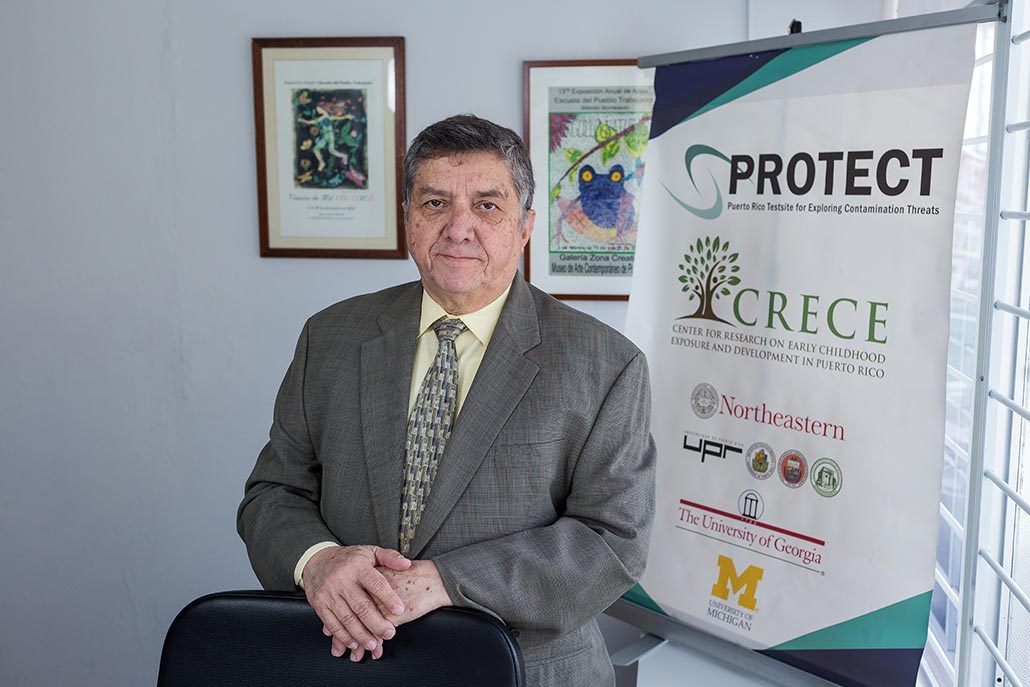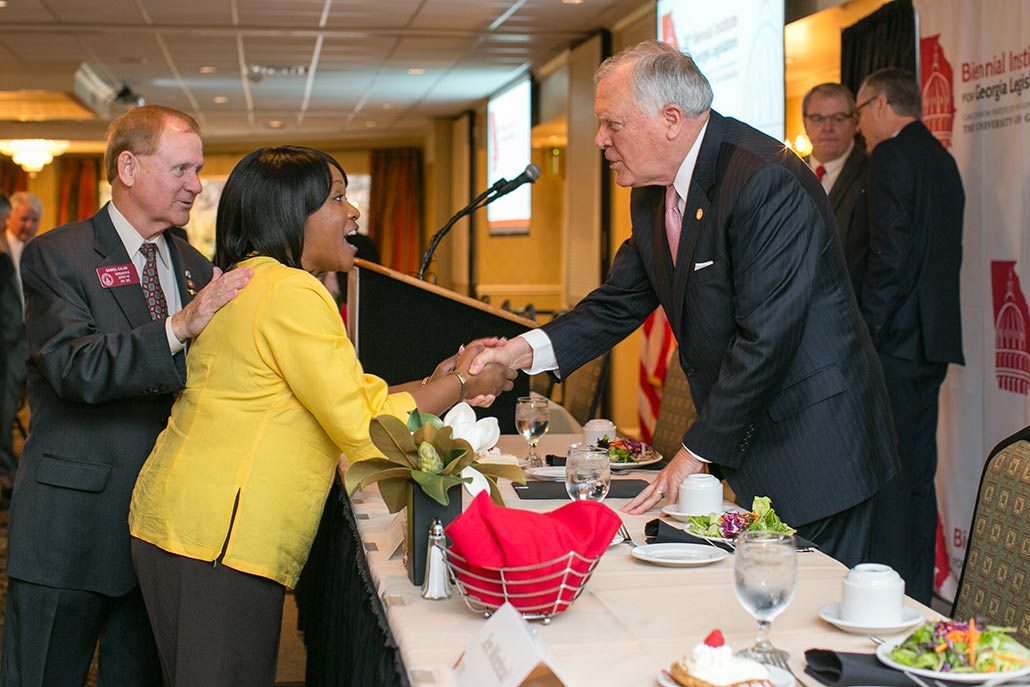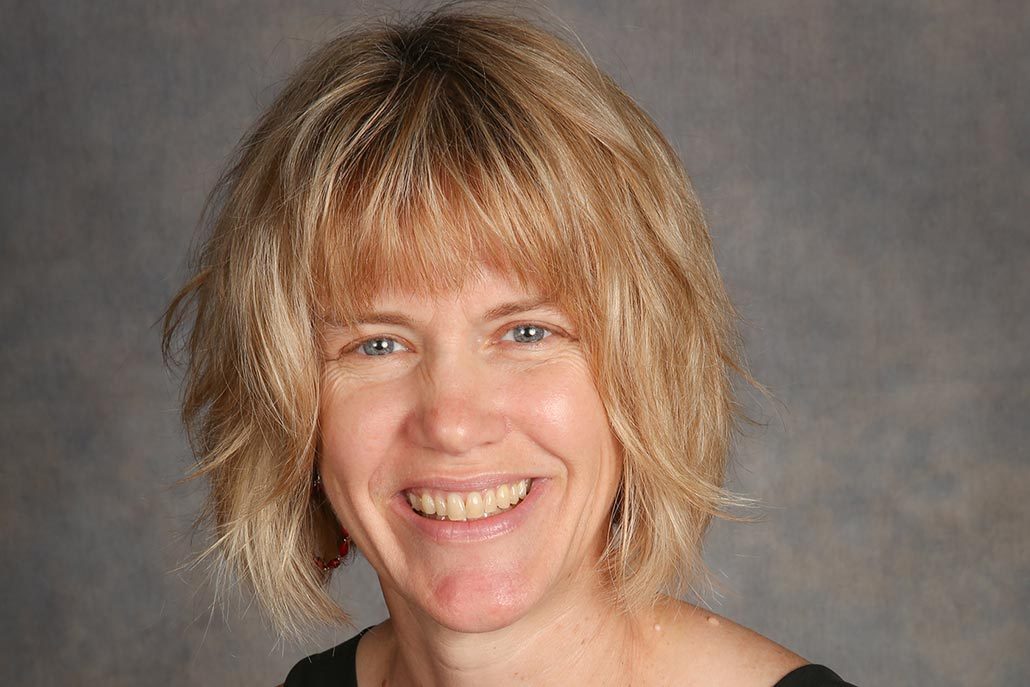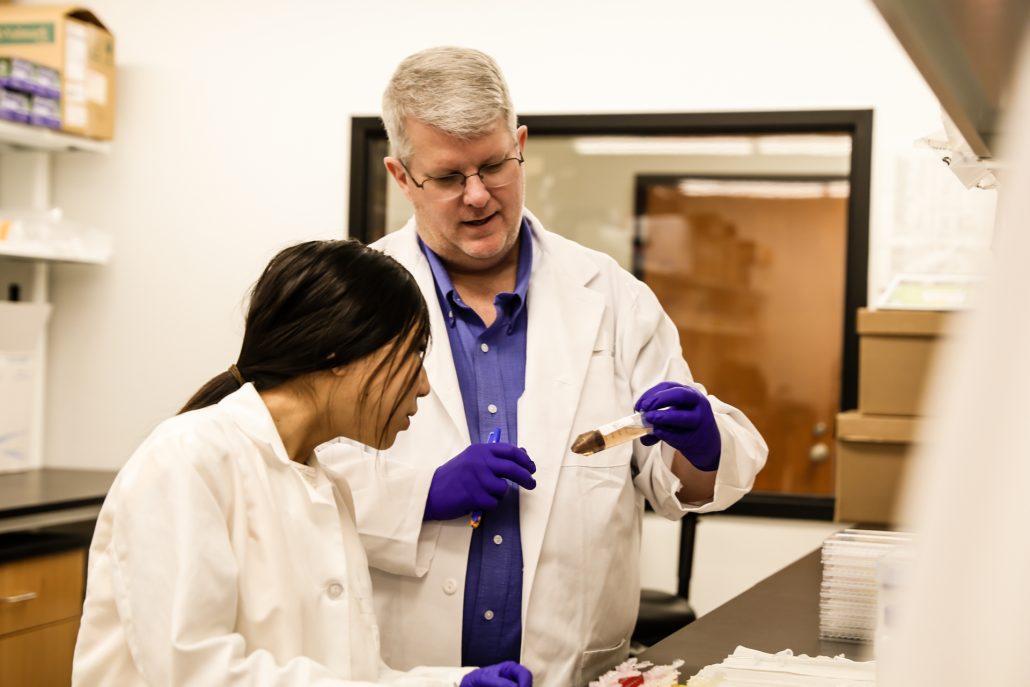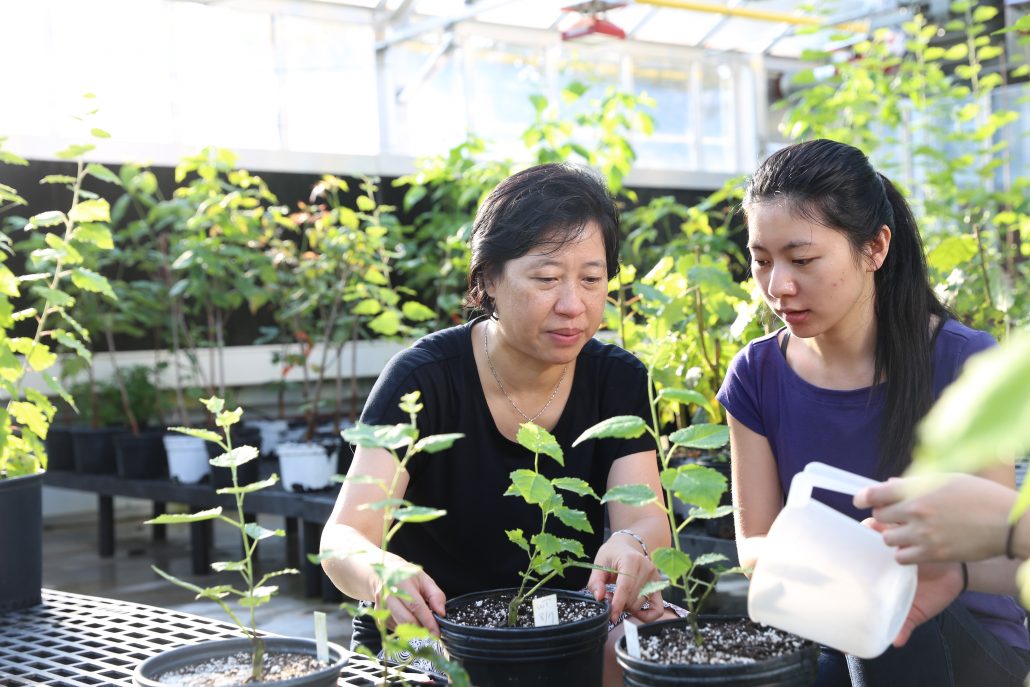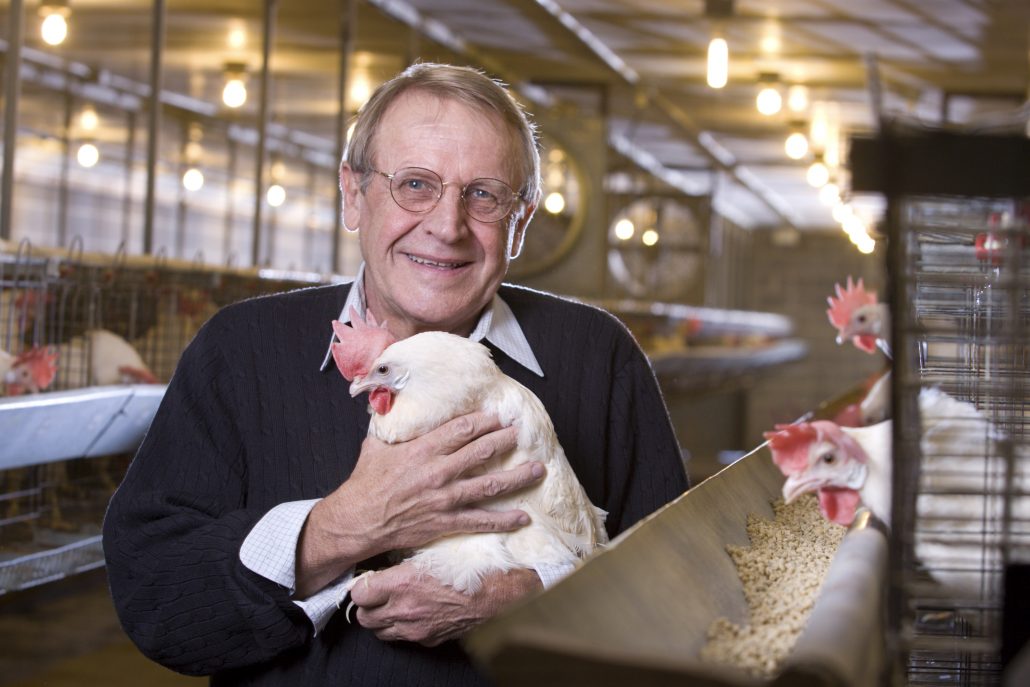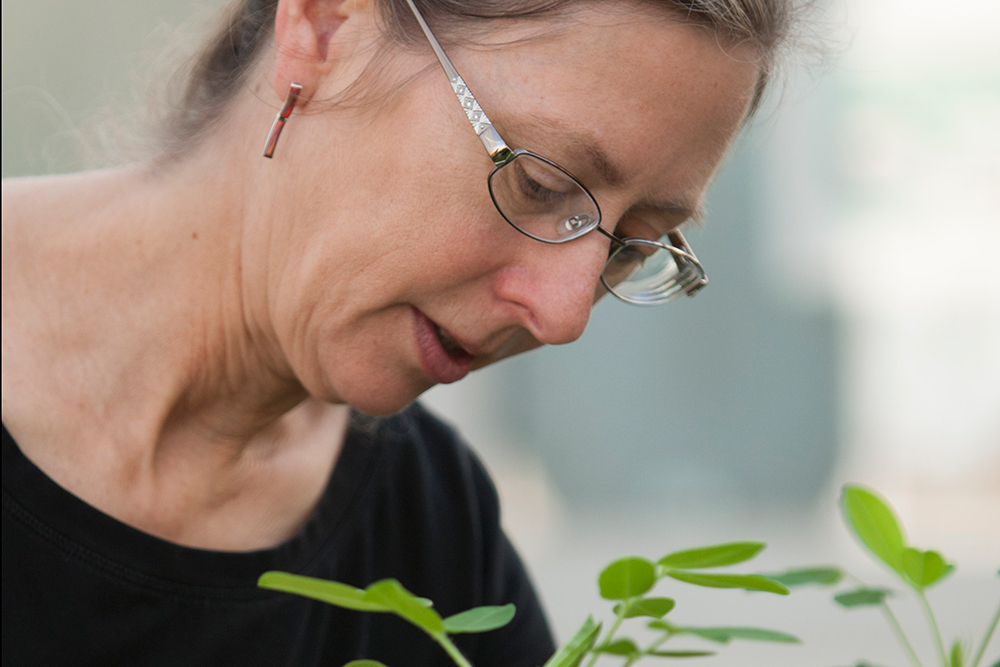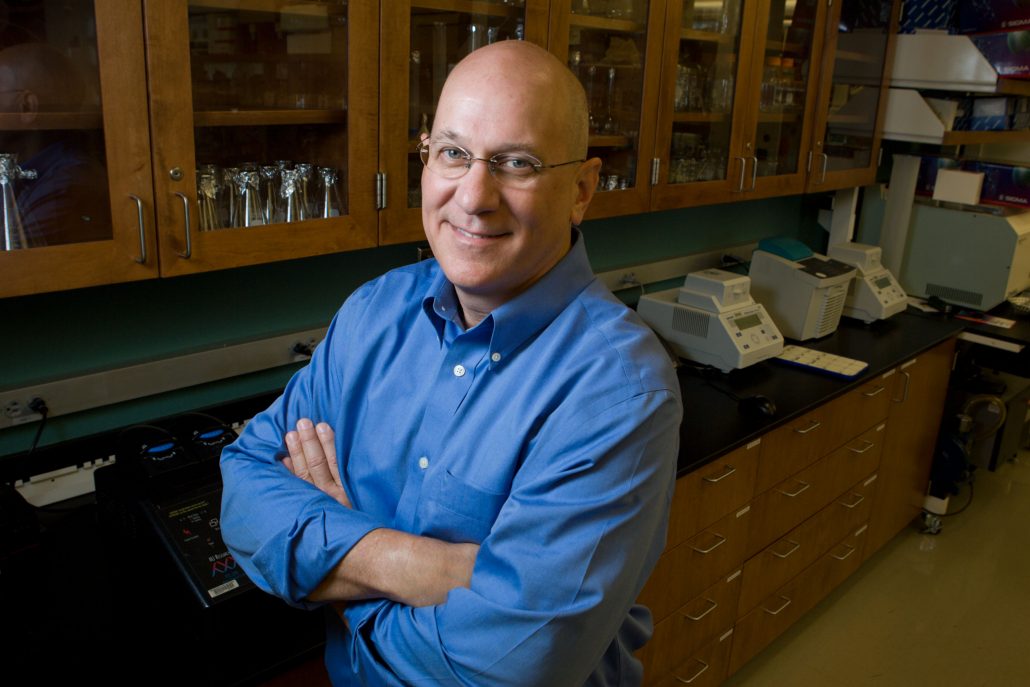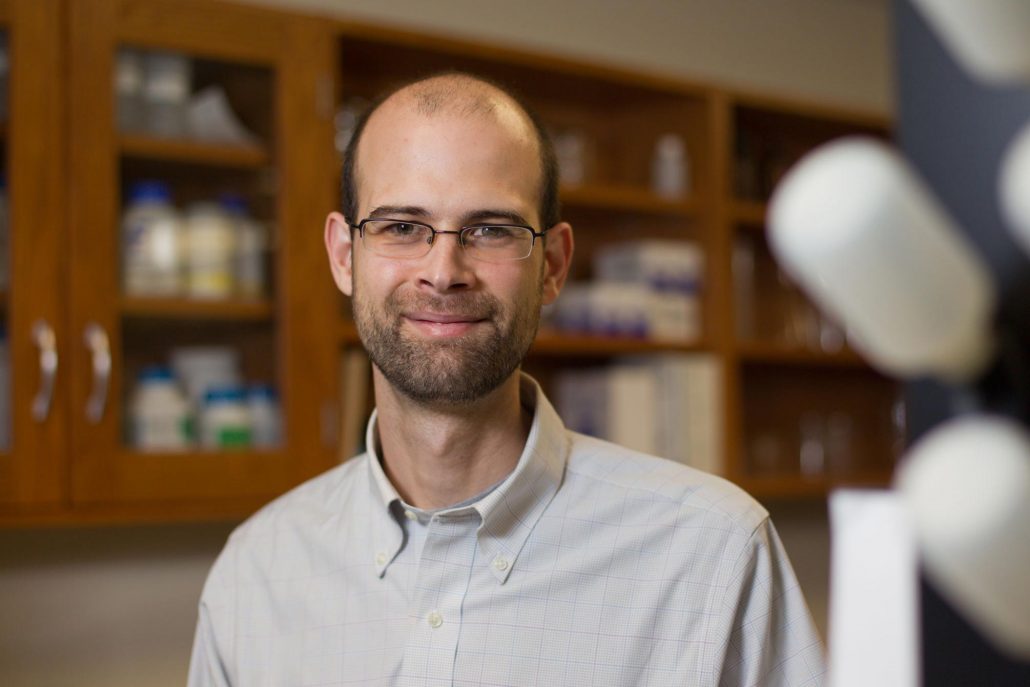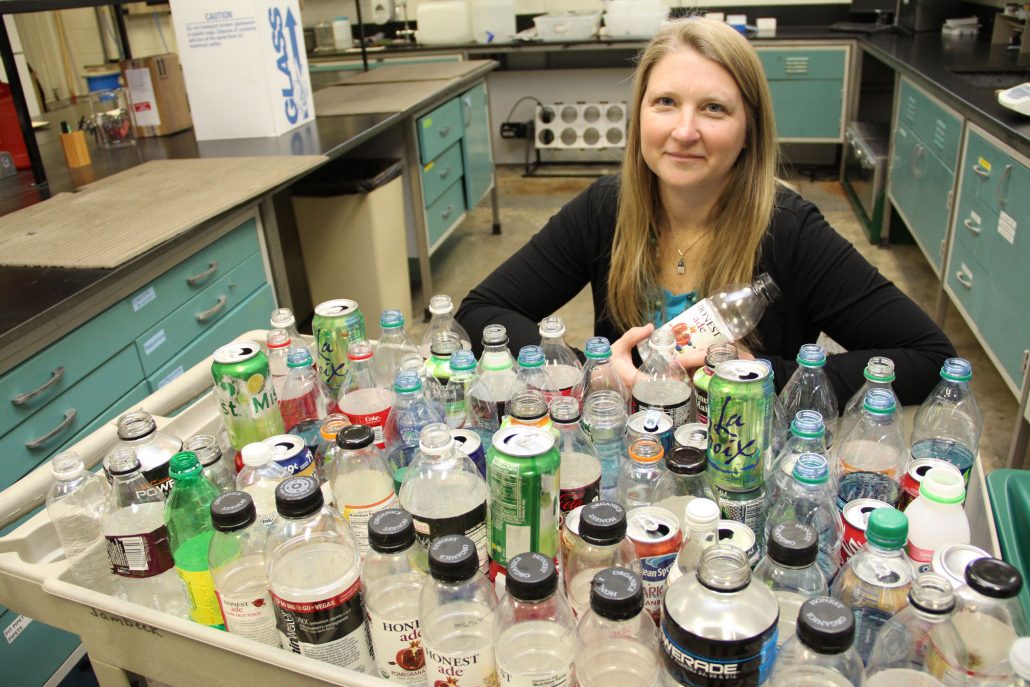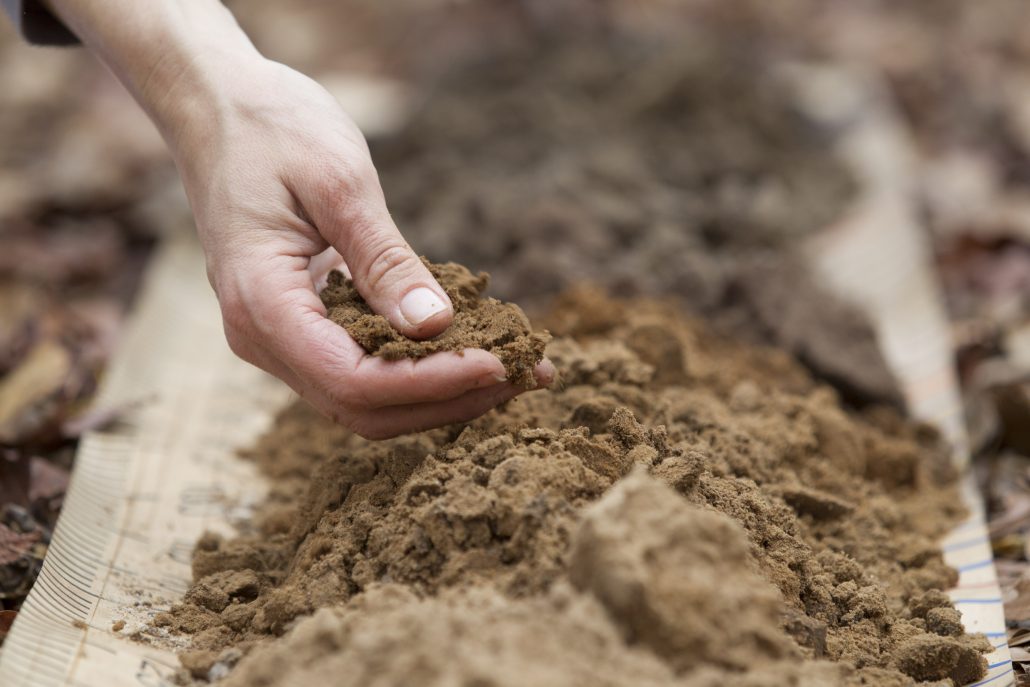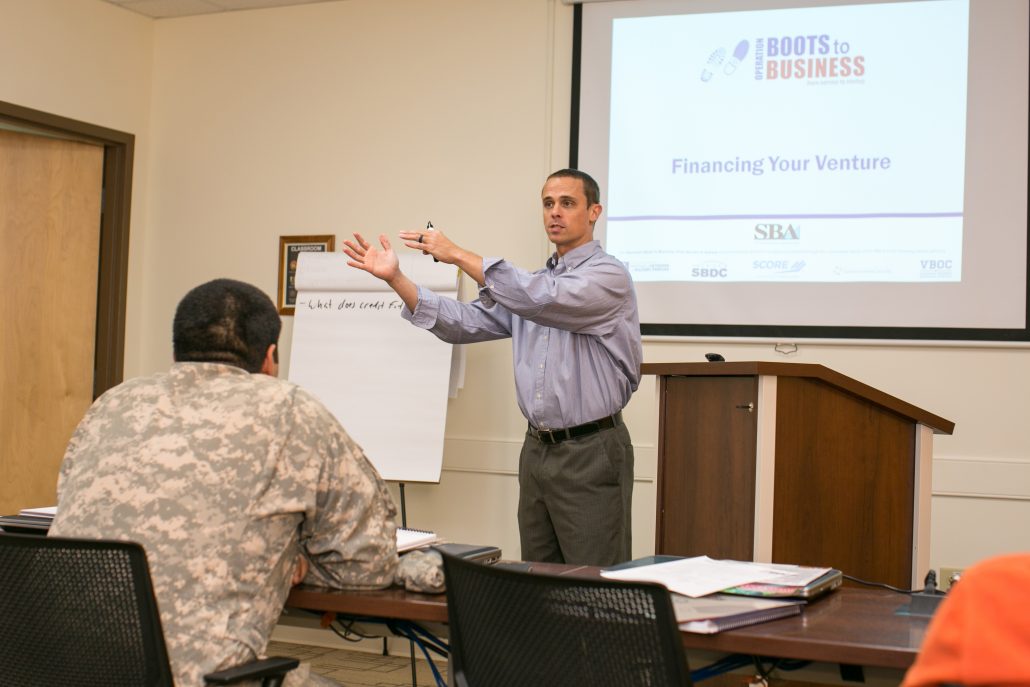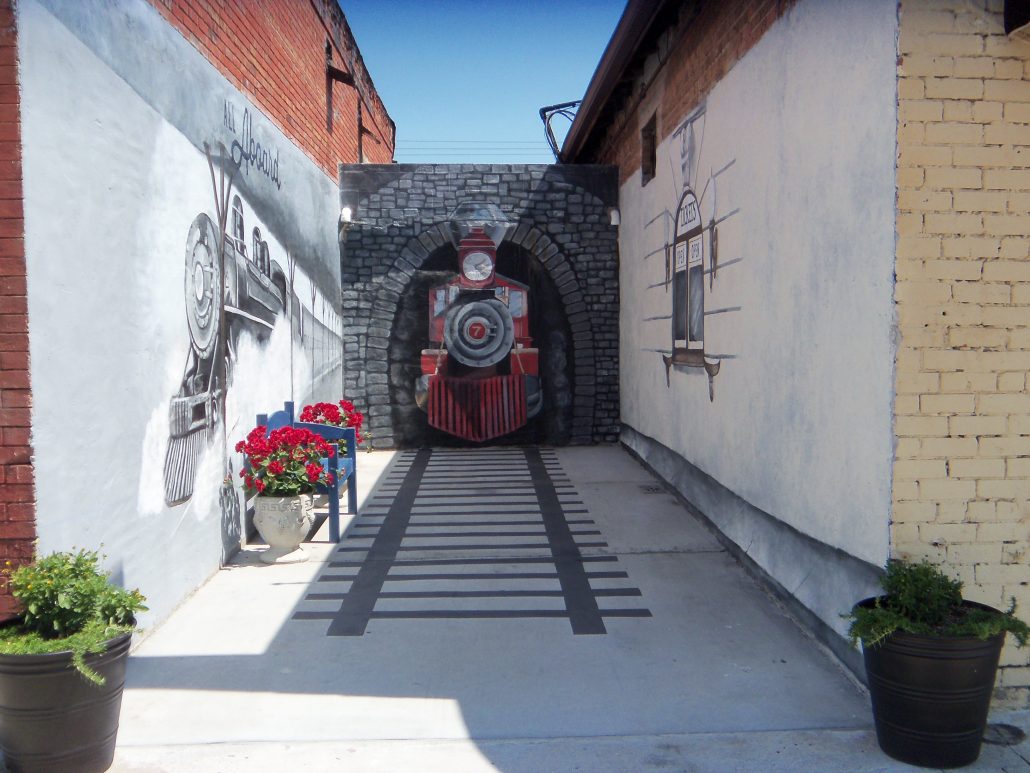UGA faculty, staff, and students are making a difference
As a pioneering American research university with a land- and sea-grant mission, we are committed to solving problems and serving communities in Georgia and throughout the world.
In order to address more global challenges, we must also multiply support for our committed educators and researchers. It’s these individuals who are training the entrepreneurs who will start the businesses that will revitalize our economy, the scientists who will study emerging diseases to help prepare for the next outbreak, and the agricultural thinkers who will address food supply issues and help feed the world.
Your support matters
Your support for research and service at UGA will help ensure that we can rise to the occasion to solve the global challenges of today and tomorrow.
James T. Hollibaugh
Oceanographer and Distinguished Research Professor of Marine Sciences
UGA’s James Hollibaugh studies microorganisms that look like bacteria but are biochemically unique. He specifically studies a subgroup called thaumarchaea that burn ammonium to grow, converting it to nitrate. This facilitates the removal of nitrogen from the ocean. Excess nitrogen—stemming from runoff carrying fertilizer and animal waste—can cause algal blooms that poison people, shellfish and marine animals. His work in the Antarctic complements extensive studies in Georgia coastal waters, leading to better management of marine resources.
“This is important research because one of the problems facing the Earth right now is too much nitrogen.”
Henry Young
Kroger Associate Professor Of Community Pharmacy
According to the CDC, an average of 130 Americans die each day from an opioid overdose. The College of Pharmacy’s Henry Young, whose research focuses on medication use, health communication and health outcomes, believes that many opioid-abuse problems could be avoided if patients had a better understanding of how to use the medications safely. He is holding focus groups with physicians and pharmacists in rural Georgia communities to learn how the opioid epidemic is affecting their practice. He hopes to help these practitioners address health literacy among their patient populations as it relates to opioid use.
“This begins to change the narrative around substance abuse and shift that conversation from a stigmatizing condition to one that we’re all dealing with and need help with.”
Pediatric Exercise & Motor Development Clinic
UGA College of Education
For 40 years, the UGA College of Education has operated the Pediatric Exercise and Motor Development Clinic to help children with disabilities lead more active lives. The nine-week program takes place each fall and spring semester for children and youth ages 2 to 14. Each participant is paired with a UGA student enrolled in an adapted physical education class who develops an exercise program that is supervised by faculty and graduate students. Activities can include swimming, riding bicycles, playing hopscotch or floor hockey, and more.
“When she first started, she was really, really shy. It’s a big confidence booster to see her come of our shell. They’re pushing her to do things that she didn’t think she could do, and they support her and say, ‘Yes, you can do this, let us help you figure out how you best do it.’” –Courtney Brown, mother of a clinic participant
Saralyn Stafford
Rural Development Manager, Public Service and Outreach
As UGA’s commitment to supporting rural areas continues to grow, UGA Public Service and Outreach has hired Saralyn Stafford, a community and economic developer with 30+ years of experience, to help drive economic prosperity in these areas. As UGA’s rural development manager, Stafford is linking communities with UGA’s expertise and resources to help address community and regional challenges by serving as a liaison between UGA and local elected officials, chambers of commerce, economic development professionals, school boards, nonprofits, and small business owners.
“Saralyn will do aggressive outreach with all of our constituencies, primarily in South Georgia, to help create jobs, develop future leaders and assist rural communities with using their unique assets to promote economic prosperity.” –Jennifer Frum, vice president for public service and outreach
William Kisaalita
Professor in the UGA College of Engineering
In sub-Saharan Africa, milk that is collected in the evenings often goes to waste in areas without electricity because there is no way to cool it overnight. UGA’s William Kisaalita was determined to find a way to maximize small farms’ dairy profits. He worked with his team to develop the Evakuula, which heat-treats milk to kill much of the bacteria in it, and then rapidly cools the milk to a temperature that prevents spoilage – all without in-home electricity. His team is now using the device to create a cooling technology for eggs, too.
“I am originally from Uganda, and I have seen this problem firsthand. I’ve seen my people cry over the milk they have lost. This is my opportunity to give something back.”
Bernadette Heckman
Associate Professor and Director of Clinical Training, Counseling and Human Development
Around the world, researchers are racing to stop the spread of deadly diseases such as malaria. As they generate and record data about a disease, UGA’s Jessica Kissinger and her colleagues work to make that information findable, accessible, interoperable and reusable by the global research community for free. How does building a database fight disease? Data help researchers construct and test their ideas about how to create treatments or map out ways to halt the spread of disease. In a nutshell, her work helps save time and hastens the discovery process for the next possible solution or cure.
“We’re in a racially, economically and geographically diverse state. At UGA, we value a multicultural sense of justice and diversity in our student population. It’s our duty to serve the needs of the state and to eliminate inequities in health care.”
George Vellidis
Professor, Crop & Soil Sciences
As the global population grows and water becomes scarcer, researchers around the world are looking for viable ways to reduce water use. George Vellidis’s work at UGA focuses on creating tools that allow farmers to grow more crop per drop of water used. He and his team have designed a variable-rate irrigation system, and are using smart technology, such as drones and apps, to assess irrigation needs in crop fields.
“We want to develop tools for improving water use efficiency so farmers are prepared for whatever the future may bring … we’re motivated to do this so that our farmers can continue growing our food and fiber.”
Jessica C. Kissinger
Director, Institute of Bioinformatics and Distinguished Research Professor of Genetics
Around the world, researchers are racing to stop the spread of deadly diseases such as malaria. As they generate and record data about a disease, UGA’s Jessica Kissinger and her colleagues work to make that information findable, accessible, interoperable and reusable by the global research community for free. How does building a database fight disease? Data help researchers construct and test their ideas about how to create treatments or map out ways to halt the spread of disease. In a nutshell, her work helps save time and hastens the discovery process for the next possible solution or cure.
“These are tools by biologists for biologists … being a member of a community, having your finger on the pulse of what’s going on, allows us to keep the tools relevant and useful.”
Esther van der Knaap
Professor in the Department of Horticulture
Horticulture professor Esther van der Knaap leads a team of researchers who are studying variations in tomato shape and size. Their hope is to pass on genetic and molecular findings to breeders – not only to contribute to the tomato industry’s $2 billion impact on our nation’s economy, but to help those breeders develop varieties that are targeted to different markets and communities. And with UGA’s extensive resources committed to plant research, her findings could have implications for our understanding of the shape and size of other produce, too.
“As we started domesticating plants and animals, we made selections and bred species based on observable characteristics. In studying these early steps, we can track how this process happened, when the mutations arose and which human societies selected them.”
UGA Marine Extension and Georgia Sea Grant
Public Service and Outreach
Coastal Georgia is among the fastest growing regions in the state. The area boasts four urban centers, three military bases, two ports and significant tourism. Unfortunately, the area also is experiencing increased flooding and rising sea levels, which challenge local governments and property owners. UGA Marine Extension and Georgia Sea Grant is helping these communities with technical expertise, data and tools to better prepare for weather events. Tybee Island, St. Marys and Brunswick are among those cities working with UGA to plan for coastal hazards and educate citizens about those efforts.
“We’re ensuring the long-term resilience of coastal communities by helping them meet federal guidelines for floodplain development, introducing green infrastructure to mitigate flooding and shoreline erosion, and developing emergency communications plans for severe weather events.” – Mark Risse, Director of UGA Marine Extension and Georgia Sea Grant
Hitesh Handa
Assistant Professor in the College of Engineering
Hitesh Handa is developing coatings for medical devices to keep tens of thousands of hospital patients from contracting potentially deadly infections each year. His background in polymer science, materials engineering and the medical device industry inform his commitment to this research. His efforts will help prevent patients’ central lines or catheters from becoming infected – important for those undergoing hemodialysis for kidney failure to those who need endotracheal tubes to breathe. Preliminary data shows that the coated devices can prevent infection in animal subjects more than 99 percent of the time.
“I feel engineers have a lot of solutions, but we don’t know what the problems are sometimes. And clinicians have a lot of problems they want solutions for, but they don’t know who to go to. So I thought, why not? I can be the bridge between engineers and clinicians.”
Roberto Perdisci
Associate Professor in the Franklin College of Arts and Sciences
As the internet spurs greater connectivity across devices, UGA is uniquely positioned to help individuals, businesses and local governments identify ways to safeguard against cybercrime – making the internet a safer place. Roberto Perdisci developed open-source software to detect malware downloads with startling accuracy. Grants from the Department of Homeland Security and the National Science Foundation are helping to deploy his software in higher education networks and to extend adoption to other enterprise networks.
“Cybercrime will never go away, but the investments in cybersecurity that universities like UGA are making are helping us get much, much better at fighting it. We may not eliminate it completely, but the important thing is to make cybercriminal activities less damaging to normal users. That’s a realistic goal that we are working toward.”
Stephen Dalton
Georgia Research Alliance Eminent Scholar of Molecular Cell Biology, Founding Director of the UGA Center for Molecular Medicine
Stem cells have the potential to generate all cell types in the human body. These cells can replace damaged cells and help grow new, healthy tissue. Using non-embryonic sources, Stephen Dalton is unlocking stem cells’ potential to cure degenerative diseases and repair acute injury. For example, new cardiac cells could be used in patients with heart disease, new neural cells could be used to repair brain injury and degeneration, and endocrine cells can help treat diabetes and other metabolic disorders. In addition to transplantation therapies, Dalton’s work helps identify drugs that can be used to treat patients with diseases that lack treatment options.
“Our research emphasis is on the translational aspects of biomedical research, which means a focus on trying to develop cures, therapies and diagnostics for human disease. The whole theme of the Center for Molecular Medicine is on human disease – whether it be diabetes, neurological disorders, cardiovascular disease or cancer.”
Mehrsa Baradaran
J. Alton Hosch Associate Professor of Law, Associate Dean for Strategic Initiatives
Low-income Americans endure great challenges when it comes to their financial well-being. Many are unable to maintain the minimum balance or provide proper identification to open a bank account. This leads them to depend on fringe financial services that charge sky-high interest rates. Mehrsa Baradaran teaches contracts and banking law, and is passionate about ensuring the poor and middle class are treated fairly by financial institutions. Her work explores the structure of the U.S. financial system to determine whether it is alleviating or perpetuating inequality, and if the latter, how it can be fixed.
“The way we design our banking system has implications for wealth and income equality. So banking law is as much about having a robust democracy as it is about having a safe banking system.”
Environmental Policy Academy
Carl Vinson Institute of Government
The Carl Vinson Institute of Government helps strengthen Georgia lawmakers’ understanding of key environmental issues through its annual Environmental Policy Academy, funded by the Dobbs Foundation. Members of the Georgia General Assembly benefit from learning about environmental and natural resource issues from leading science and policy experts. The academy’s curriculum helps prepare these citizen lawmakers to make informed decisions about complex environmental issues.
“I felt like we needed to make an effort through an avenue like the policy academy to bring our legislators outside the area they’re familiar with. We need to know the state to make state policy.” –Rep. Lynn Smith, chair of the state House Natural Resources and Environment Committee
Timothy K. Adams, Jr.
Mildred Goodrum Heyward Professor in Music, Percussion Area Chair in the Hugh Hodgson School of Music
Timothy Adams, Jr. boasts a 30-year career as an orchestra musician and a master educator whose students have seen great success around the country and the world as performers, educators and music therapists. As a prolific composer, he produces works that reflect his perceptions and feelings, and allow him to work out those feelings. Adams passes that approach to students, knowing that they will graduate and improve society throughout their musical careers.
“Our job as artists is to reflect society in real time, and that guides my work. The concert stage is my research platform. What I learn on stage is the information I give students each week. I hope my students learn to take chances; it’s a quality that can push the arts in a direction that can actually change our society.”
Vicki Michaelis
John Huland Carmical Chair in Sports Journalism & Society
Vicki Michaelis was the lead Olympics reporter for USA Today through six Olympic Games. She spent 21 years as a sports journalist, also covering NBA and college football in Denver and Miami. Today, she directs UGA’s Sports Media Certificate program–the first of its kind in the Southeastern Conference. Her students get real-world experience in covering high school, college, professional and Olympic sports. They also study how sports mirror and drive societal change. She is helping to ensure the next generation of sports media professionals have high journalistic standards and the skills to negotiate the ever-changing media landscape.
“My goal is to make UGA the premier place for students who want to work in sports media and for sports media outlets that want the best-prepared employees.”
Kenneth Ndyabawe
Biomedical Engineering Ph.D. Student
International Ph.D. student Kenneth Ndyabawe spent his childhood in a small town in western Uganda. Today, he is working with College of Engineering staff to develop a “brain-on-a-chip” that mimics specific aspects of human brain functionality and neurological diseases. He hopes it will help test and predict how drugs that target neurological diseases would affect humans. He also has conducted research to develop microdevices, software and tools for tissue engineering, and renewable energy powered cooling systems to preserve milk in sub-Saharan Africa.
“I am committed to sharing knowledge, building devices and alleviating poverty. After earning my Ph.D., I plan to pursue a position in academia or industry research that will allow me to continue to teach others while building things that will help people to lead better lives.”
Roberto Docampo
Barbara and Sanford Orkin/Georgia Research Alliance Eminent Scholar, Distinguished Research Professor of Cellular Biology
Roberto Docampo is renowned for his efforts to develop therapies to treat potentially fatal parasitic infections, including malaria, Chagas disease and sleeping sickness. He is credited with discovering a new organelle inside the parasites, acidocalcisome, which is an excellent target for the chemotherapy of a number of neglected tropical diseases that have ravaged the populations of Latin America and sub-Saharan Africa.
“Our research has applications beyond the treatment of infectious diseases. We found that human organelles similar to acidocalcisome play an important role in blood clotting and inflammation, which may lead to new therapies for uncontrollable bleeding, thrombosis and immune diseases.”
Pharmacy Consultations
The Small Business Development Center + UGA College of Pharmacy
The UGA SBDC, in collaboration with the UGA College of Pharmacy, provides confidential and free consulting services to independent pharmacy owners. Pharmacy students on rotation enhance the consultations that include financial health checks, pharmacy valuations, fee analyses, and strategic marketing assessments. They gain hands-on entrepreneurial experience while pharmacy owners gain insights to improve and grow their businesses.
“While the [program] is primarily focused on helping pharmacy students gain firsthand knowledge about operating an independent pharmacy, the pharmacies that host students end up with a detailed financial review, as well as extensive marketing and management suggestions on how to improve the operations and profitability of the business.” –Allan Adams, Director of the Small Business Development Center
Marisa Anne Pagnattaro
I.W. Cousins Professor of Business Ethics
Marisa Pagnattaro (PHD ’98) is committed to helping develop ethical business leaders who have a thorough understanding and respect for the law. By providing unparalleled teaching experiences, Pagnattaro gives students a competitive edge and a principled foundation on which they can build their careers. She brings her research on Chinese law, the protection of trade secrets and employment into the classroom. She adds to that dynamic by encouraging students to leverage study abroad and travel experiences to add depth to discussions on law and culture.
“I want my students to understand and appreciate how the law affects their lives and the world around them. The law is so much a part of the business community, that without a basic understanding, students are at a disadvantage. With at least a basic understanding, they will have an edge in all that they do.”
UGA Small Satellite Research Lab
Hands-on Experience with NASA Support
The Small Satellite Research Laboratory is an undergraduate-led research lab, mentored by faculty, with the goals of launching small satellites, CubeSats, into space to gather scientific data and to provide experiential learning opportunities for UGA students. Fifty-four undergraduates are building the Spectral Ocean Color (SPOC) satellite for NASA that will analyze coastal vegetation and ocean color to monitor wetlands of coastal Georgia and beyond. SPOC was selected by NASA, along with 33 other CubeSats from across the country, to fly aboard missions planned to launch between 2018 and 2020. The lab is also designing the Mapping and Ocean Color Imager (MOCI) for the Air Force Research Laboratory that will scan the Earth’s surface in order to create 3D models using images.
“The SPOC is not just an educational tool, but a state-of-the-art spacecraft that is on par with cutting-edge technologies.” —Caleb Adams ’18, astrophysics and computer science double major, chief manager of the SSRL
“The lab provides a unique opportunity for undergraduates in which they learn and actively participate in the designing, building, and testing of components that will fly in space.” —David L. Cotten, Ph.D., SSRL supervisor and assistant research scientist in geography
Gregory H. Robinson
UGA Foundation Distinguished Professor of Chemistry, Fellow of the Royal Society of Chemistry
Greg Robinson is one of the world’s most notable synthetic inorganic chemists. From industrial catalysts to the synthesis and structure of compounds that are relevant to nanotechnology, the investigations of his laboratory address unique gaps in our understanding of chemical bonding. Robinson and his research team have published findings that have reshaped how scientists view chemical bonding between earth-abundant elements. Such discoveries may ultimately play a role in improving industrial production of computer chips and solar panels.
“Our laboratory has been studying difficult problems relating to fundamental issues of structure and bonding in organometallic compounds. We are particularly interested in the synthesis, structure, and reactivity of compounds that contain multiple bonds between main group elements such as phosphorus, silicon, and gallium.”
ExportGA and Export-U
UGA’s Small Business Development Center helps Georgia businesses enter new markets
When 95 percent of the world’s customers live outside of the U.S., international opportunities become a crucial component of many business plans. ExportGA is a four-session, 16-hour training program to help export-ready companies develop their international sales. The program has helped more than 150 companies sell in excess of $40 million around the world since it began in 1999. Export-U is a free, online training program that is supported by the U.S. Department of Commerce.
“We’d probably be floundering without the SBDC. They helped us understand tariffs and what it takes to do business in other countries. It’s like having my own consulting company internationally when I need it.” —Carl Hazenberg, Everlast Synthetic Products, 2016 Small Business Administration Georgia Exporter of the Year
Shawnya L. Harris
Larry D. and Brenda A. Thompson Curator of African American and African Diasporic Art
Shawnya Harris is the first curator to focus on African-American arts at the Georgia Museum of Art. She will highlight the museum’s collection of African-American artists that was donated by Larry D. and Brenda A. Thompson, in addition to expanding the collection by looking for new and undiscovered art. Harris will dig into the work and lives of the artists in the collection to provide better understanding of who they were and what they were trying to create. That research will offer opportunities for collaboration across disciplines, and it will paint a more complete and colorful picture of what is known about American art.
“There aren’t a lot of African-American artists who show up in major survey texts. So we’ve got a role in documenting those artists, making it available—not just here—but for people who are interested beyond Georgia.”
WenZhan Song
Georgia Power Mickey A. Brown Professor of Engineering
WenZhan Song’s expertise and research interests reside in the realm of “big data”, also called informatics, where massive data sets are collected and analyzed. The engineering faculty member is developing “smart grid” energy systems that have the potential to increase the use of renewable energy sources to establish a more secure future for Georgians. He is also creating the first “subsurface camera” system for more efficient geo-energy exploration and production, and less environmental impact.
“Integrating renewable energy into our power grid has the potential to reduce our impact on the environment, and the use of smart technology has the potential to reduce the world’s overall energy consumption. The benefits are significant.”
Karen Norris
Georgia Research Alliance Eminent Scholar in Immunology and Translational Biomedicine
Karen Norris is a leading infectious disease researcher in the College of Veterinary Medicine’s Department of Infectious Diseases and the UGA Center for Vaccines and Immunology. Her research focuses on infectious and chronic diseases, including HIV, pulmonary diseases, inflammatory diseases and diabetes. She is developing models of a respiratory virus that infects the lungs. While most healthy people with this virus only experience mild cold-like symptoms, it can be serious for infants and older adults. Her disease model may be particularly useful for vaccine and therapeutic testing.
“This is an exciting time of growth for biomedical research at UGA, particularly in the areas of infectious diseases and vaccine development, and I look forward to working with colleagues at UGA, the Georgia Research Alliance and the greater Georgia research community on the development of novel vaccines and immunotherapeutics.”
José F. Cordero
Gordhan L. and Virginia B. “Jinx” Patel Distinguished Professor in Public Health, Department Head of Epidemiology and Biostatistics
José F. Cordero has dedicated his career to addressing health disparities and the health of mothers, children and minorities. He was already part of a research team conducting a study of pre-term births in Puerto Rico when the Zika outbreak began there. Now, that project is also focused on the care of would-be mothers and prevention of the disease.
“The endowment provided by the Patel Distinguished Professorship in Public Health will be instrumental in expanding research and service opportunities in maternal and child health and will lead to healthier babies and mothers in Georgia and throughout the world.”
Biennial Institute
A Public Service & Outreach Program
The Biennial Institute for Georgia Legislators, coordinated by UGA’s Carl Vinson Institute of Government, is a bi-annual event that helps lawmakers prepare for the upcoming legislative cycle. New and veteran legislators count on the Biennial Institute to provide information and training that will help them make better-informed decisions for Georgia. A recognized event on the state’s political calendar since 1958, the Biennial provides legislators with valuable time for learning, networking, and exploring state issues prior to the upcoming session of the General Assembly.
“It’s a great honor for UGA to host and facilitate the Biennial Institute – the premiere event that brings new and returning legislators together to study some of the complex issues they will face over the course of a legislative cycle. It’s a very important way that the university helps address some of today’s important challenges and opportunities.”
Laura Meadows
Director of the Carl Vinson Institute of Government
Karen Burg
Harbor Lights Chair in Small Animal Studies
Karen Burg’s tissue engineering work has implications for improving the treatment of breast cancer and other diseases. Her work includes building arrangements of patients’ cells to assist in the identification of early stage diseases. Her research team is also finding ways to use normal, healthy cells to build replacement parts for cancer or bone trauma patients who have had unhealthy or damaged tissue removed.
“The College of Veterinary Medicine research initiatives are focused on both animal and human health; it will be exciting to find ways to connect engineering tools with these efforts.”
Ted Ross
GEORGIA RESEARCH ALLIANCE EMINENT SCHOLAR OF VACCINES AND VIRAL IMMUNITY
Ted Ross is developing a universal flu vaccine that would protect against all forms of influenza. One or two shots would provide protection for many years or even a lifetime, much like vaccines we have for polio, smallpox or mumps.
“Vaccines are one of the most important developments in the history of humankind. We have eliminated or reduced the incidence of many of the most deadly infectious diseases. Now we’re trying to understand how vaccines work in different populations so that we can construct vaccines that work well in as many people as possible.”
Marshall Shephard
UGA ATHLETIC ASSOCIATION PROFESSOR IN THE SOCIAL SCIENCES
Marshall Shepherd, director of UGA’s Atmospheric Sciences Program, is a leading scientist at the intersection of extreme weather, climate, and society. A former NASA scientist and president of the American Meteorological Society, Shepherd seeks to improve understanding and predictability of flood-producing storms, hurricanes, and other extreme weather.
In addition to his research and teaching, Shepherd has been a champion for increasing weather and climate literacy. He leverages his Award-Winning Weather Channel show and contributions to Forbes to reach the public.
“It is important to understand that climate change impacts more than sea level and polar bears. There are implications for national security, agricultural productivity, global water stress, diseases, and more.”
C.J. Tsai
Georgia Research Alliance Eminent Scholar of Forest Biotechnology
Researchers at the University of Georgia were the first to use a gene editing tool known as CRISPR/Cas to modify the genome of a tree species – a breakthrough with implications for food crops and animal feeds, as well as biofuel feedstocks.
“Compared to some other gene editing techniques, CRISPR is incredibly simple, cost-effective and highly efficient. It could serve as the foundation for a new era of discovery in plant genetics.”
Robert Ivarie
EMERITUS PROFESSOR OF GENETICS
Robert Ivarie has found potential low-cost treatments for a rare disease in humans through his research with chickens. His discoveries led to the creation of a new drug for an ultra-rare and often fatal disorder known as Wolman disease. Now, his small company has been acquired by a major pharmaceutical company that has made the drug available to the market.
“This is a great example of a small company that turned into a real job generator. We have exceptional talent base at the University of Georgia, and the technologies our faculty and staff are developing can create new business and jobs. It can be done, and more importantly it can be done right here in Georgia.”
Peggy Ozias-Akins
Professor of Horticulture
UGA scientists are working to improve food security and reduce poverty in key countries as part of the international Feed the Future initiative. Their research helps farmers in developing nations grow better quality, calorie-rich peanuts, which may help break the vicious cycle of poverty and malnutrition.
When improperly managed or exposed to stress late in the season, peanuts become susceptible to molds that produce harmful toxins. But Peggy Ozias-Akins is helping to create peanut varieties that are resistant to fungal contamination and produce fewer allergens.
“Peanut genome sequencing provides us with gene-based information that can be used to breed an even healthier, more disease resistant, and higher yielding peanut.”
Rick Tarleton
UGA ATHLETIC ASSOCIATION DISTINGUISHED PROFESSOR IN THE BIOLOGICAL SCIENCES
Researchers at the University of Georgia are working on better ways to diagnose, prevent and treat Chagas disease, a parasitic disease that is the most common cause of heart failure and sudden death in the world.
Cellular biologist Rick Tarleton is working in collaboration with Anacor Pharmaceuticals to develop a new drug for the treatment of Chagas disease, which they hope will be ready to enter clinical trials soon.
“Chagas disease is incredibly understudied, because it is a disease of poverty, and the two drugs commonly used to treat Chagas disease require a long course of therapy and have a number of serious side effects. This, combined with the fact that many parasites are resistant to these existing drugs, emphasizes the tremendous need for new treatments.”
John Drake
Professor of Ecology
John Drake and colleagues in the Odum School of Ecology are leaders in a global effort to predict when new infectious disease threats, like Zika and Ebola, are likely to arise, and when they are likely to subside. The researchers use computer models to understand where diseases come from, how they spread and what we might do to control them.
“Despite huge advances in vaccines and therapeutics, the burden of infectious diseases continues to rise. Early detection and early response was how we eliminated smallpox. We can do better by predicting diseases before they occur.”
Jenna Jambeck
Associate Professor of Engineering
UGA environmental engineer Jenna Jambeck was the first to systematically calculate the amount of plastic waste that makes its way into the ocean from solid waste on land: eight million metric tons – the equivalent of five grocery bags full of plastic on every foot of coastline in 192 countries. Her study, published in Science, is a first step in designing solutions to stop the flow of plastic into oceans.
“By changing the way we think about waste, valuing the management of it, collecting, capturing and containing it, we can open up new jobs and opportunities for economic innovation, and in addition, improve the living conditions and health for millions of people around the world and protect our oceans.”
Marc van Iersel
Professor of Horticulture
UGA horticulturists are developing affordable soil moisture sensors that save water, increase efficiency, and reduce the environmental impacts of plant production, while simultaneously maximizing production.
“We now have the ability to build new technology that can actually get the growers the information they need in real time to make much better decisions about irrigation. We hope in the long run that we can come up with a simplified version that can be used in developing countries where water is very limited.”
Boots to Business Program
Small Business Development Center
The Small Business Development Center (SBDC) provides tools, training and resources to help small businesses succeed. One of Georgia’s top small business assistance providers, the SBDC has 17 offices across the state to serve the needs of Georgia’s business community. Since 1976, the SBDC network built a statewide system to foster the spirit, support and success of hundreds of thousands of entrepreneurs and innovators.
Boots to Business, a national program located near military bases, is now offered in Georgia through the SBDC. This two-day course introduces entrepreneurship to service-men and -women who are beginning post-military careers. More than 900 individuals have taken the course since it was first offered by the SBDC in late 2013.
Georgia Downtown Renaissance Partnership
The Carl Vinson Institute of Government helps communities revitalize their downtowns to attract more businesses and jobs.
The Vinson Institute’s Downtown Renaissance Partnership works with UGA College of Environment and Design, the Georgia Municipal Association and the Georgia Cities Foundation, to help communities develop strategies to reinvigorate economic development. CED students provide technical and design services and develop solutions to community challenges.
Since its inception in 2013, the Renaissance Partnership has worked in 30 downtowns across the state.

